

Bringing the heat
The bold flavours redefining Australia’s pub kitchens















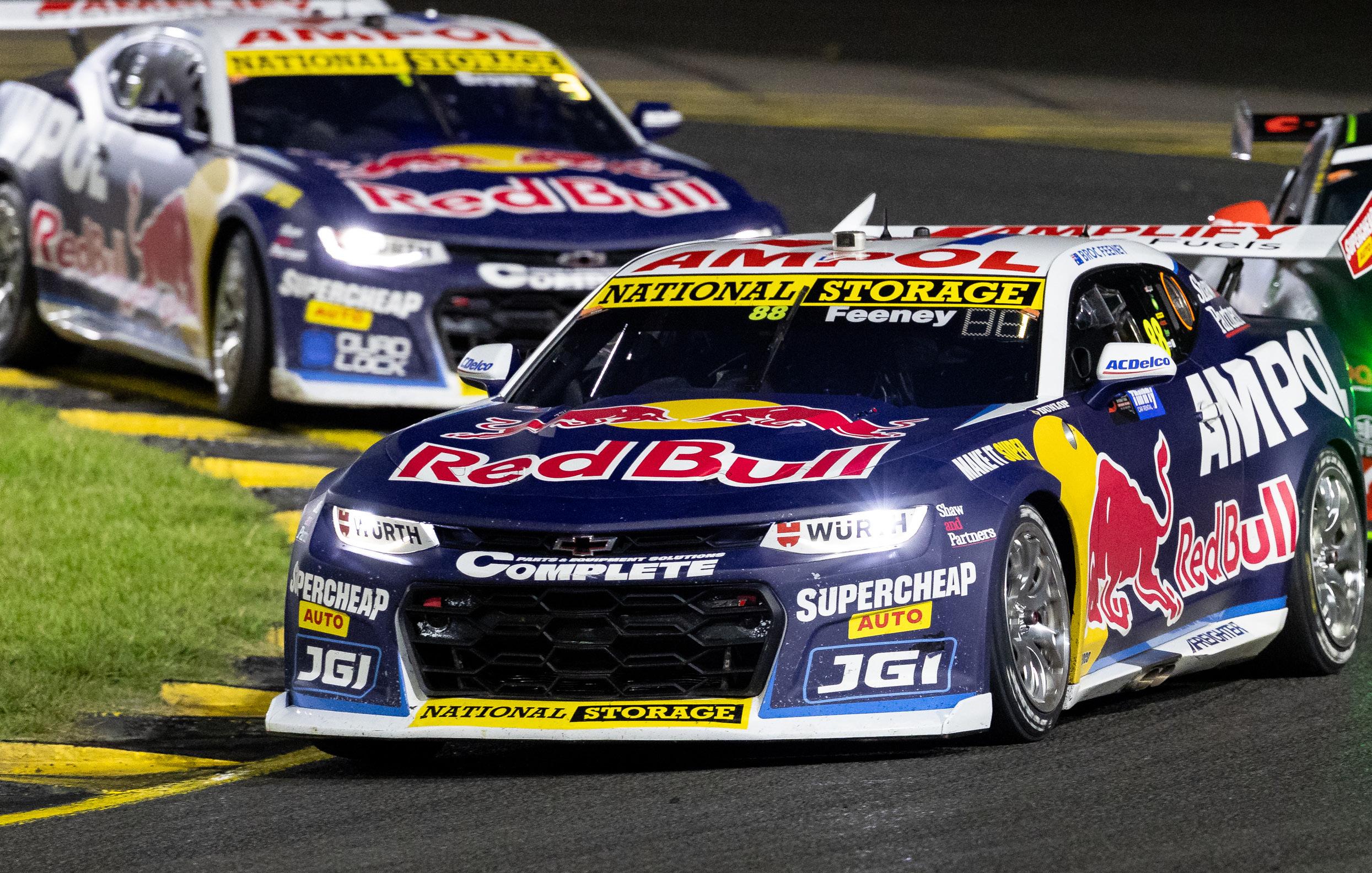
Requires internet connection. Foxtel licensed venues customers only. Requires Business iQ connection and compatible 4K TV/equipment. Selected games in 4K. Where multiple content formats (HD & 4K) or multiple distribution sources are playing out in a single zone of your venue, there may be audio-visual synchronisation lags. Foxtel is used under licence by Foxtel Management Pty Ltd






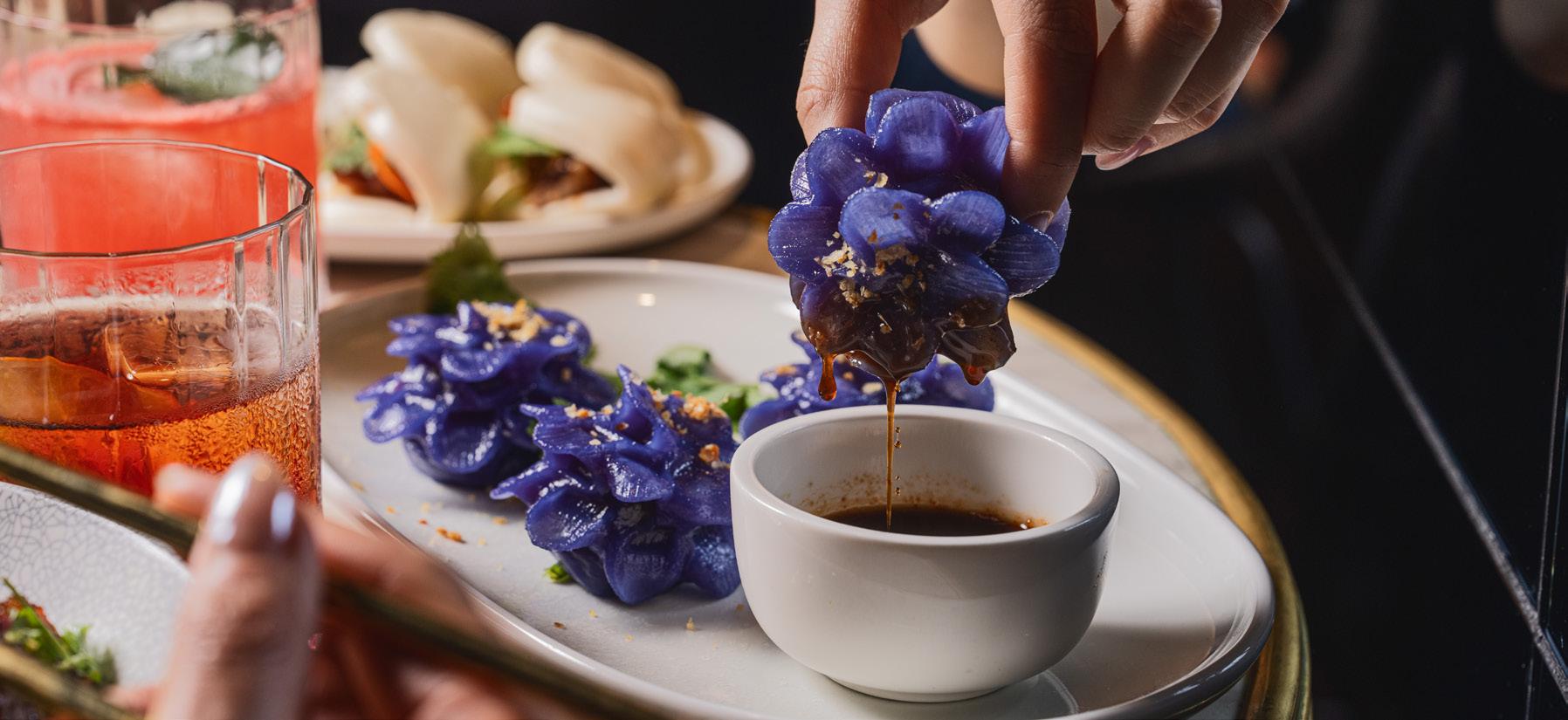
26 Pub Staples: As
strings tighten, patrons are returning to classic pub fare.
REGULARS
Leaders
Tilley & Wills’ group operations manager David Thompson reflects on a lifelong passion for hospitality.
Community: The Roebuck Bay Hotel is more than just a place to drink.
Asian Cuisine: Asian flavours are firing up Aussie pubs and offering strong margins.
Venue Profile: Auntie Annie’s Hotel offers modern twists on traditional Irish dishes across two distinct spaces.
6 News: What’s happening in pubs across Australia.
30 Design & Build: Solotel has revived a Western Sydney pub as a vibrant new venue, The Woodstock.
Tales from the Top: David Basheer steps up as the new AHA national president.
Editor’s Note

WHILE VANESSA enjoys her well-earned long service leave after a decade at the helm of Australian Hotelier, as senior journalist I’ve had the privilege of curating this issue – I hope you’ll enjoy reading it!
In Pub Dining, we hear from the operators serving crowd-pleasing comfort dishes, from the Irish spice bags winning hearts to staples like the chicken schnitty continuing to stand the test of time. While we’re seeing a sense of familiarity across the pub dining scene, there’s plenty of innovation too –Asian-inspired menus that are fast, fresh and flavourful are offering new revenue opportunities.
Community is integral to the pub landscape, and in this issue we take a look at the approach that has earned the Roebuck
Bay Hotel a reputation as a cultural hub. Just as pubs build community for their patrons, fostering a strong internal team culture is also key, and we explore some of the new training initiatives helping teams grow together. On the leadership front, David Basheer shares his focus as he steps into his new role as national president of the AHA. We also hear from Tilley & Wills’ group operations manager David Thompson about his rise through the ranks in our new Pub Leaders Profile series.
Cheers!
Molly Nicholas, senior journalist E: mnicholas@intermedia.com.au
PUBLISHED BY: Food and Beverage Media Pty Ltd 41 Bridge Road GLEBE NSW Australia 2037 Tel: 02 9660 2113 Fax: 02 9660 4419
PUBLISHER: Paul Wootton
EDITOR: Vanessa Cavasinni vcavasinni@intermedia.com.au
NATIONAL SALES MANAGER: Jason Wild Tel: 02 8586 6213 jwild@intermedia.com.au
GENERAL MANAGER SALES –LIQUOR & HOSPITALITY GROUP: Shane T. Williams
GROUP ART DIRECTOR –LIQUOR AND HOSPITALITY: Kea Webb-Smith kea@intermedia.com.au
PRODUCTION MANAGER: Jacqui Cooper jacqui@intermedia.com.au
COVER IMAGE: Axis Productions
SUBSCRIPTION RATES 1yr (11 issues) for $95.00 (inc GST) 2yrs (22 issues) for $152.00 (inc GST) – Saving 20% 3yrs (33 issues) for $199.00 (inc GST) – Saving 30% To
or Call: 1800 651 422 (Mon
Fri 8:30-5pm AEST) Email: subscriptions@intermedia.com.au
purse
REACH SPORTS FANS AND NEW GUESTS
Increase your reach with SportsPick’s marketing, app and promotional tools.
BOOST YOUR LOCAL TIPPING COMPS
Exclusive access to more than $300K in national prize pools.





In the news
WHAT’S HAPPENING IN PUBS ACROSS AUSTRALIA
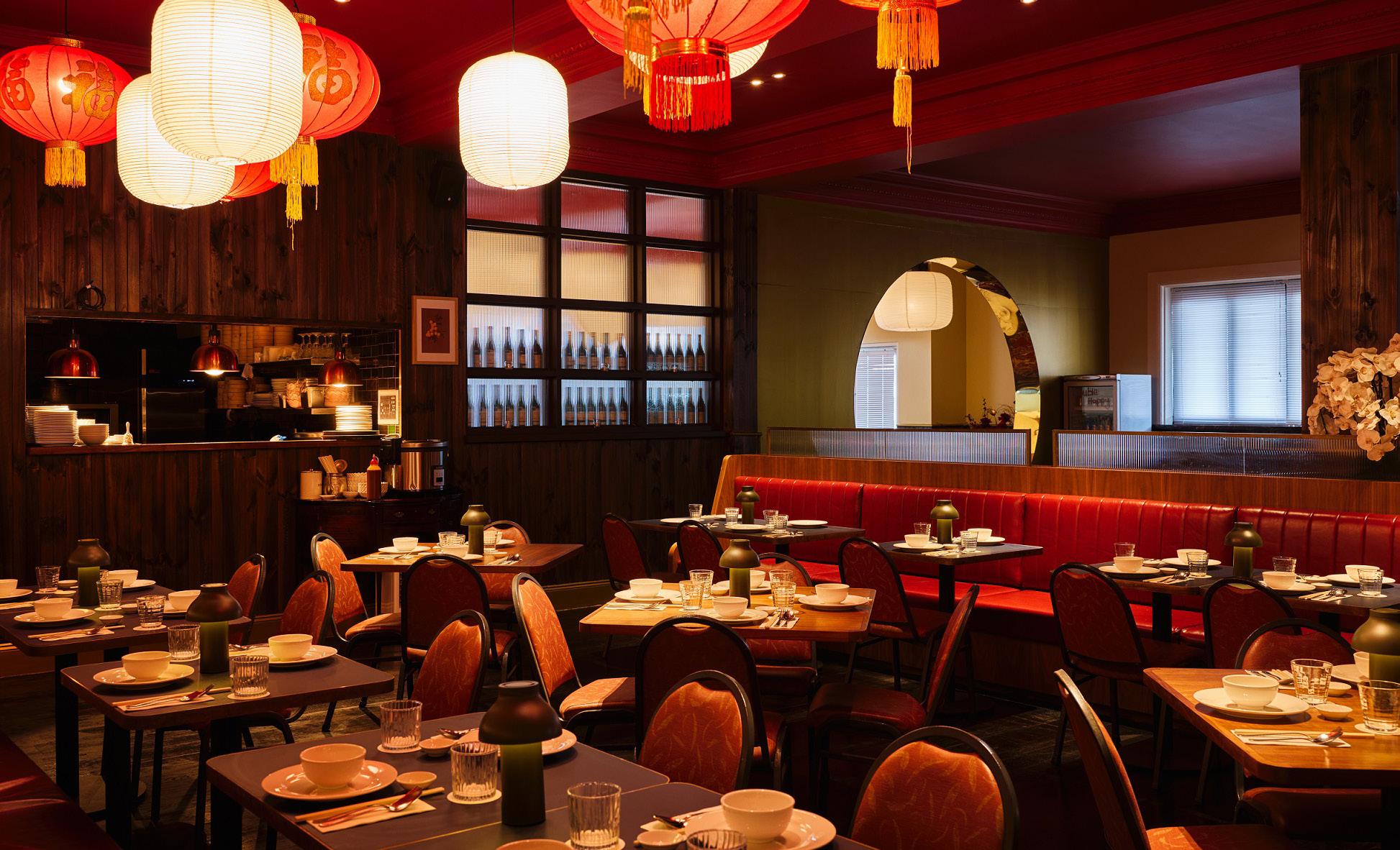
Trustee appointed for Jon Agdemis’ bankrupt estate
The trustee for the bankrupt estate of former Sydney pub baron Jon Agdemis was appointed by order of the Federal Court on Friday, 3 October 2025.
Agdemis declared bankruptcy on Thursday, 2 October, after the collapse of his Public Hospitality pub group, owing creditors and suppliers over $1.8 billion. Andrew Yeo was appointed as the trustee, to undertake detailed investigations in relation to the bankrupt estate.
The Australian Financial Security Authority and the Inspector-General in Bankruptcy welcomed the Federal Court’s decision to declare Adgemis bankrupt by a sequestration order.
AFSA Chief Executive and InspectorGeneral in Bankruptcy said: “Mr Adgemis owes approximately $1.8 billion, yet his personal insolvency agreement offered $3 million, returning only 0.15 cents in the dollar to creditors, significantly below the average return in bankruptcy cases.
“Bankruptcy provides a longer period in which these debts can now be properly investigated and assets identified, and this will be done by the trustee nominated by the Deputy Commissioner of Taxation.”
In a statement about the bankruptcy,
Agdemis said he took full responsibility for the collapse of Public and “the position that has been reached”.
He added: “I am deeply disappointed that my broader vision for the group did not come to fruition, and that, despite sustained efforts, I was unable to deliver a better outcome for creditors.
“The collapse of the restructuring process means that arrangements intended to benefit creditors, including employees, could not be completed.
“I accept the process now in place, I accept the trustee’s appointment, and I will co-operate fully so the process can run its course.”
Five Public Hospitality venues placed into receivership
Agdemis’ move to declare bankruptcy came after five more of his Sydney pubs and accommodation venues were placed into receivership earlier in the same week, with McGrathNicol Restructuring appointing partners Jonathan Henry, Damien Pafield and Katherine Sozou as receivers and managers.
The venues include the Empire Hotel in Annandale and Hotel Diplomat Sydney
in Potts Point, which have more recently been operated by Linchpin Hospitality.
The Empire Hotel features a bar, two food concepts – Dale’s Pizza and newly-launched Australian-Chinese restaurant Double Happy, 19 gaming machine entitlements and a 21-room boutique accommodation offering. Hotel Diplomat Sydney offers 51 boutique accommodation rooms.
The receivers commenced an immediate sale process for both venues while continuing to operate them on a businessas-usual basis.
The three remaining venues are the Exchange Hotel in Balmain, Claridge House in Darlinghurst and the South Bondi Hotel – all three of which Linchpin Hospitality had shared plans to renovate and reopen.
All three assets are currently under construction, and the receivers intend to continue construction of the Exchange Hotel and Claridge House with a view to progressing the works before bringing both assets to market early next year. However, development plans for the South Bondi Hotel could come to a halt, with the receivers sharing intentions to bring it to market later in the year, or early 2026.
The Empire Hotel, which includes Double Happy restaurant, has been placed into receivership.
Photography by Steven Woodburn.
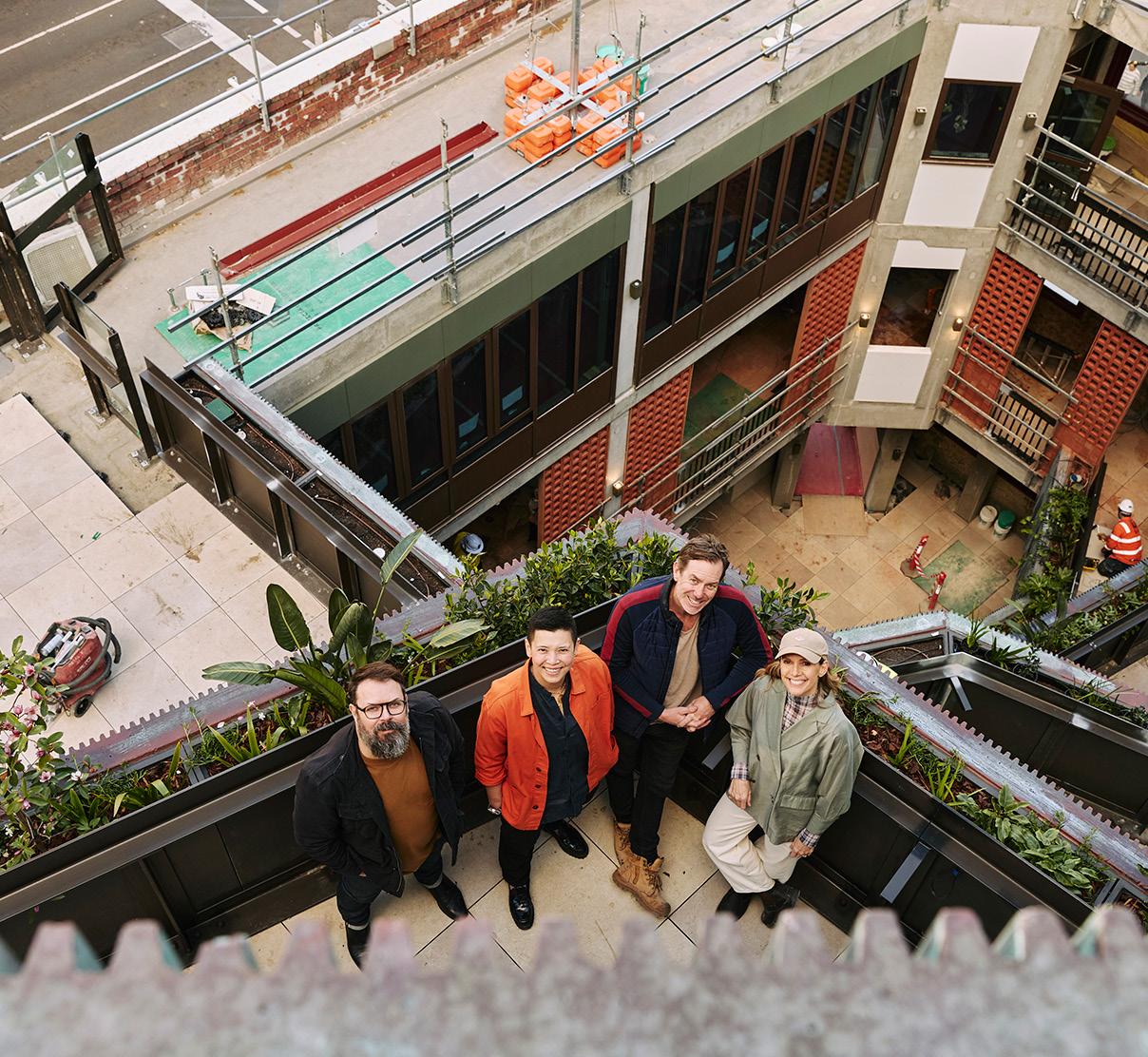
Sand Hill Road to reopen
The Waterside Hotel
Sand Hill Road’s mammoth transformation of The Waterside Hotel is nearing completion, with the landmark venue set to open this month.
Situated on the corner of Flinders and King streets in Melbourne, the pub has been under redevelopment for eight years, making way for a seven-level venue that combines heritage character and contemporary hospitality.
While the 1925 façade has been retained, the interior has been completely reworked to house multiple bars, dining areas and garden terraces offering panoramic views of the city.
Matt Mullins, co-owner of Sand Hill Road, says: “The Waterside Hotel is the culmination of decades revitalising pubs across Melbourne. We’re deeply passionate about breathing new life into treasured venues, and we felt that now was the perfect time to revive The Waterside Hotel – restoring this iconic landmark while offering something truly unique for Melbourne, that is on a global scale.”
Patrons will find a public bar and beer garden on the ground floor, serving classic Australian pub fare. Upstairs, south-east Asian restaurant PAST / PORT will span three levels and include a rooftop cocktail bar, outdoor terrace and private event spaces.
Spearheading the food program across the entire venue is executive chef Sarah Chan, who played an integral role in developing the concept for The Espy’s Cantonese restaurant Mya Tiger.
“The Waterside Hotel is not just about grand design – it’s about how people connect to the rooms, the mood, and each other. We’ve strived to create something that carries the soul of a Melbourne pub, but on a scale and ambition that feels truly world-class,” added Mullins.
With Sand Hill Road now concentrating its efforts on the relaunch of The Waterside Hotel, the landmark project is designed to reflect the design-led, service-focused philosophy seen in the group’s other venues, including The Espy in St Kilda, Garden State Hotel in Melbourne’s CBD and Richmond Club Hotel.
Sonnel Hospitality nabs Opera Bar head chef
Sonnel Hospitality has announced the appointment of Fernando Sanchez as its new group head chef, leading the group’s growing culinary team as it expands beyond Western Sydney.
Sanchez joins Sonnel Hospitality from Solotel, where he spent five years as executive chef at Opera Bar. He also led kitchens at House Canteen, The Clock in Surry Hills, the Marlborough Hotel in Newtown, and Aria Catering, working under Matt Moran’s philosophy of supporting local producers and seasonal ingredients.
Tim Fitzgerald, chief operating officer at Sonnel Hospitality, commented: “Fernando’s creativity and leadership will help us set a new benchmark in hospitality. As we continue to grow, food is central to creating the game changing experiences we’re building for the future and an important part of how we connect with our communities.”
In the role, Sanchez will oversee the culinary direction of all Sonnel Hospitality venues. Initially, his focus will be the Crossroads Hotel in Casula, for which the group recently lodged $34 million expansion and renovation plans; the Australian Hotel & Brewery in Rouse Hill; and the Firehouse Hotel in North Sydney.

The seven-level venue will combine heritage character and contemporary hospitality. Photography by Michael Pham.
Fernando Sanchez. Photography by Ethan Smart.
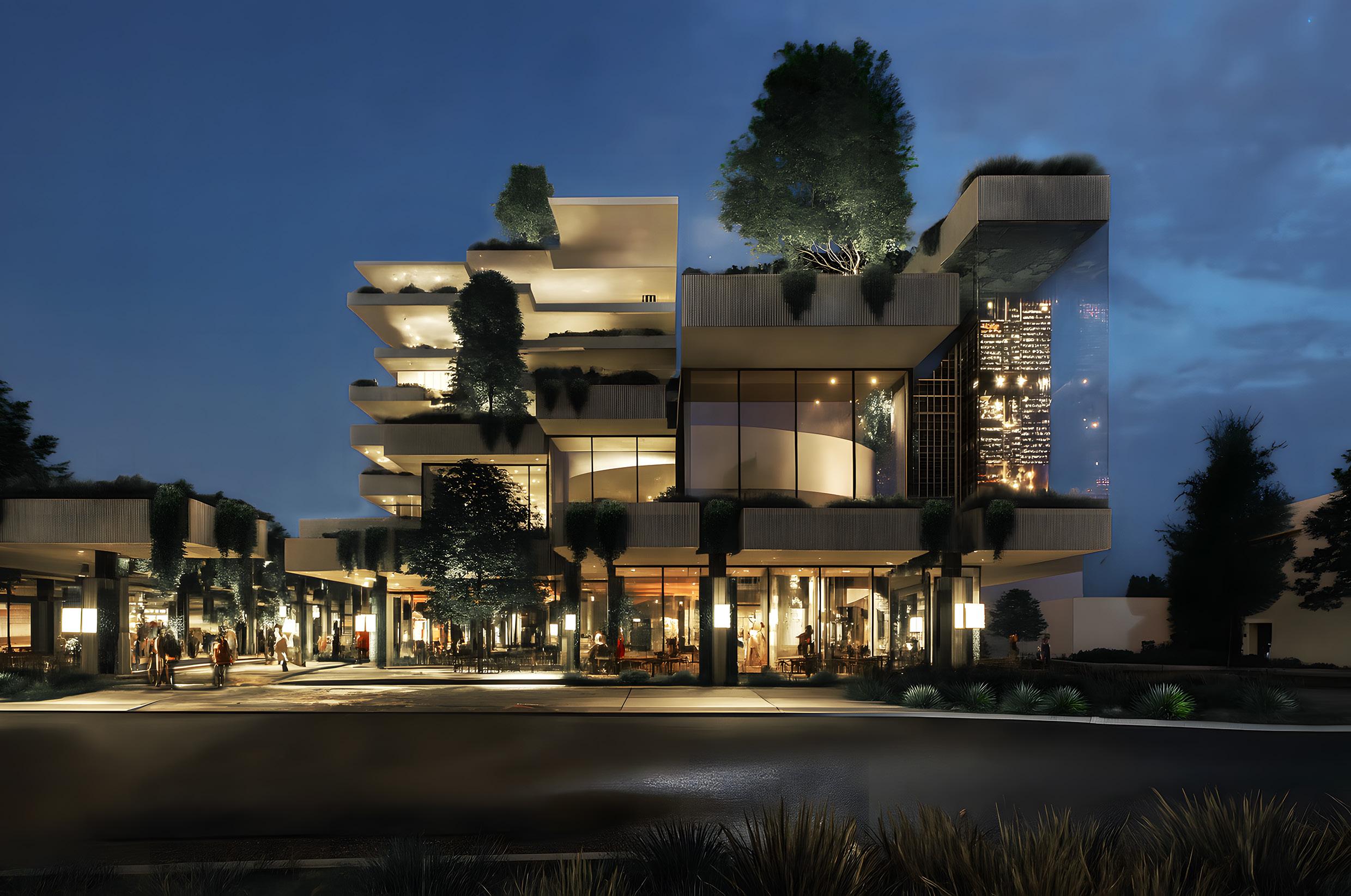
Comiskey Group to transform North Lakes with $180m precinct
The Comiskey Group has revealed plans to develop a $180 million Town Centre Precinct in North Lakes, aiming to redefine one of Queensland’s fastest growing areas with a pioneering new destination.
Spanning 1.72 hectares, the heart of the development will be a 130-room, five-star boutique hotel rising above a 2,500 sqm signature Comiskey Group hospitality venue.
Blending lifestyle, leisure and hospitality offerings, the precinct will also include premium restaurants, boutique fashion retailers, a gym and wellness facilities, and a large green public area, designed to create a walkable, welcoming space for the local community.
Comiskey Group director Rob Comiskey says the precinct will redefine what’s possible for the City of Moreton Bay.
“North Lakes is home to more than 24,000 residents within the booming City of Moreton Bay. Despite this growth, there has never been a central, world-class town centre that brings everything together –until now. This project will be the beating heart of North Lakes: a place to dine, shop, stay and be entertained,” he stated.
The project is set to generate more than 880 jobs across construction and operations in the first five years, and is projected to contribute around $538 million to the local economy. Beyond its economic benefits, the precinct is designed as a cultural destination to meet the growing needs of the region’s expanding population.
Mayor Peter Flannery said the project perfectly captures the council’s ambition to grow a strong visitor economy and deliver new opportunities for locals.
“We put the call out last August for an iconic proposal that would elevate the City of Moreton Bay on the tourism map, and Comiskey Group’s vision ticks every box with world class design by Bureau Proberts, genuine community benefit, and serious economic horsepower for our city,” Flannery stated.
The Comiskey Group is well known for delivering transformative destinations across south-east Queensland, including the Dakabin Hotel and Eatons Hill Hotel. As part of the 2025 Annual Industry Leaders Forum, Comiskey
told Australian Hotelier that the group’s continued focus was large-scale renovations, having unveiled the first stage of the overhauled Imperial Hotel in Eumundi in September last year.
In August, Comiskey Group also revealed plans for a landmark $250 million accommodation expansion at the Sandstone Point Hotel and Holiday Resort, including the region’s first greenfield five-star hotel and a vibrant retail and entertainment precinct.
Detailed design and approvals for the landmark North Lakes Town Centre precinct are expected to progress this year, with award-winning architects Bureau Proberts appointed to bring the project to life. Construction is scheduled to begin in 2026.
“My family are proud to invest in a project of this scale – one that will create jobs, energise the economy and, most importantly, give the North Lakes community a destination they can call their own. This is about more than buildings – it’s about creating vibrancy, culture and a sense of place that is truly world-class,” Comiskey added.

Epochal Hotels gives Old Commodore Hotel new life
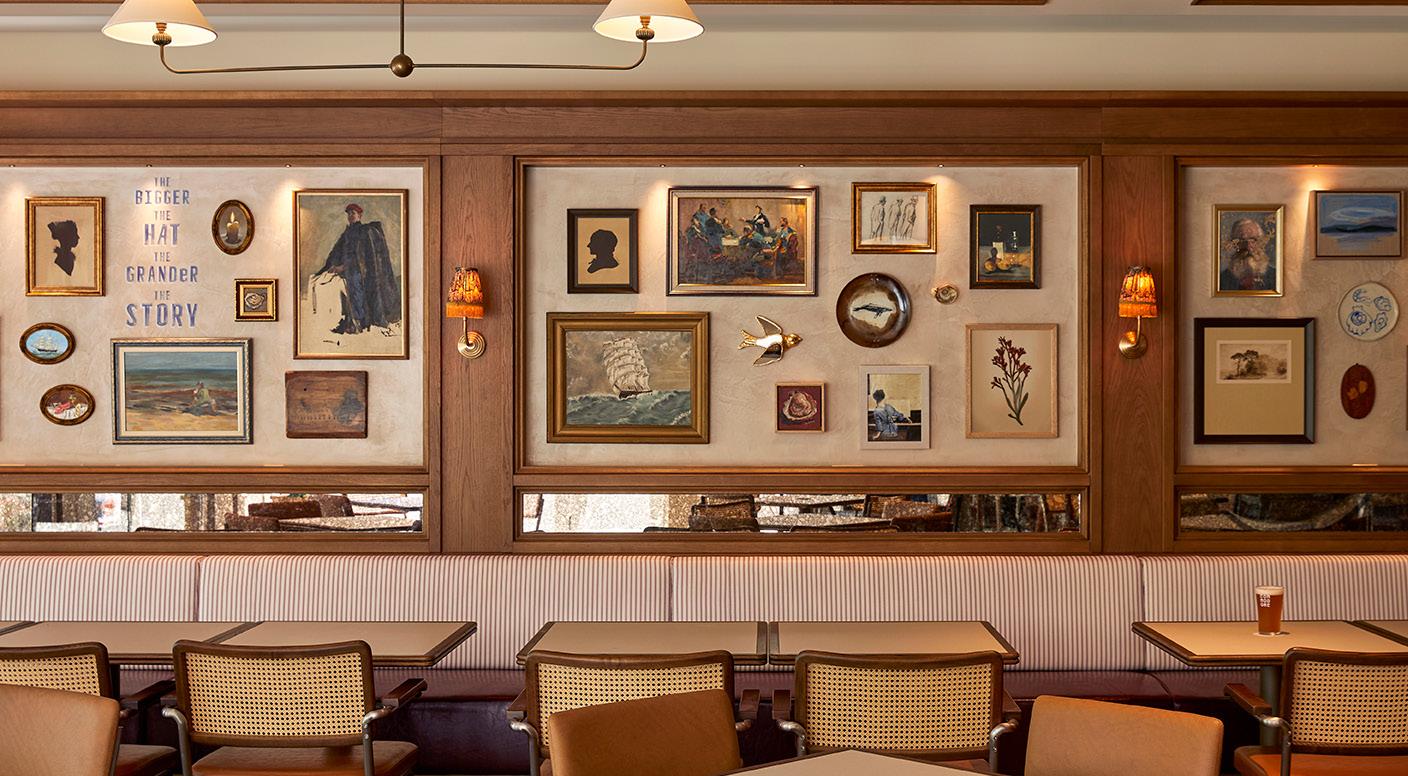
A familiar face reopened last month on Sydney’s North Shore, with Epochal Hotels giving the Old Commodore Hotel a fresh look that honours the story of William “Billy” Blue, who gave the pub and surrounding area its character.
John Blue, son of Billy “The Old Commodore” Blue opened the original Old Commodore Inn in 1854, carrying on his father’s legacy of hospitality – a heritage now echoed in the pub’s refreshed design and atmosphere.
Situated between North Sydney and McMahons Point, the pub has been a local institution for more than 169 years.
Glenn Piper, CEO of Epochal Hotels, says: “The Old Commodore Hotel has always been a place where people come together. With this reopening, we’ve poured our energy into ensuring that this
continues for a new generation, while letting Billy Blue’s bold, welcoming, and full-of-character spirit shine through.
“It’s once again a space where locals and visitors can gather, share stories, and make new memories and we couldn’t be prouder to welcome the community back.”
Described as “the pub’s beating heart”, the main bar sets the stage for a new music program of local acts and emerging artists. While the main bar will be the central hub for music, programming will also extend to the sports bar – a moody, cellar-style space that shows sports by day, and transitions into a music den by night.
The music program continues in the terrace and beer garden, where sundrenched outdoor spaces will showcase live acts and DJs year-round.
Finally, the dining room offers a more
intimate space and a showcase of Billy Blue’s legacy with portraits, press clippings and artefacts lining the walls. The menu is approachable with dishes like woodfired pizzas, chicken parmi, fish and chips and a choice of steaks, while patrons can also expect elevated seafood dishes such as bug roll and crab croquettes.
The Old Commodore Hotel, which was acquired in 2023, is the second renewal project to be revealed by Epochal Hotels this year, having launched Bombie’s at the Harbord Hotel in June as an expansion of the venue’s existing offering.
The group also expanded its portfolio of landmark pubs with the acquisitions of the Tumbulgum Tavern on the Northern Rivers and the Bermgui Beach Hotel on the South Coast earlier this year.
Landscaping in the sun-drenched terrace and beer garden reflect the pub’s heritage.
Billy Blue’s legacy shines through in the transformation.
New ways to inspire
Many operators are rethinking how they support their staff and embracing new training styles – the result is training that’s more connected, more creative and more effective.
STAFFING HAS long been a challenge for pubs, and with recruitment and retention still high on the agenda, operators are thinking more creatively about how to inspire and develop their teams.
Across the industry, new ideas are emerging –from hands-on kitchen symposiums to leadership lessons drawn from unexpected industries – all proving that a different approach to staff development delivers strong results.
Andrew Lewis, CEO of hospitality training provider Allara Global, has observed a decisive shift away from traditional, time-intensive programs towards more agile, high-impact training over the last few years. He finds that experienced operators view training not as a cost, but as a direct investment in staff satisfaction and retention – placing greater emphasis not only on technical skills, but also on the soft skills that reduce workplace pressure and improve team engagement.
“The real key to inspiration, however, is personalisation,” Lewis told Australian Hotelier “Developing a unique learning pathway for each person is what will ultimately drive motivation and solve the retention problem.
“The key is to build training into the fabric of the workday, starting from day one. A culture of learning isn’t created in a single training session; it’s built through a strong foundation and consistent daily habits.
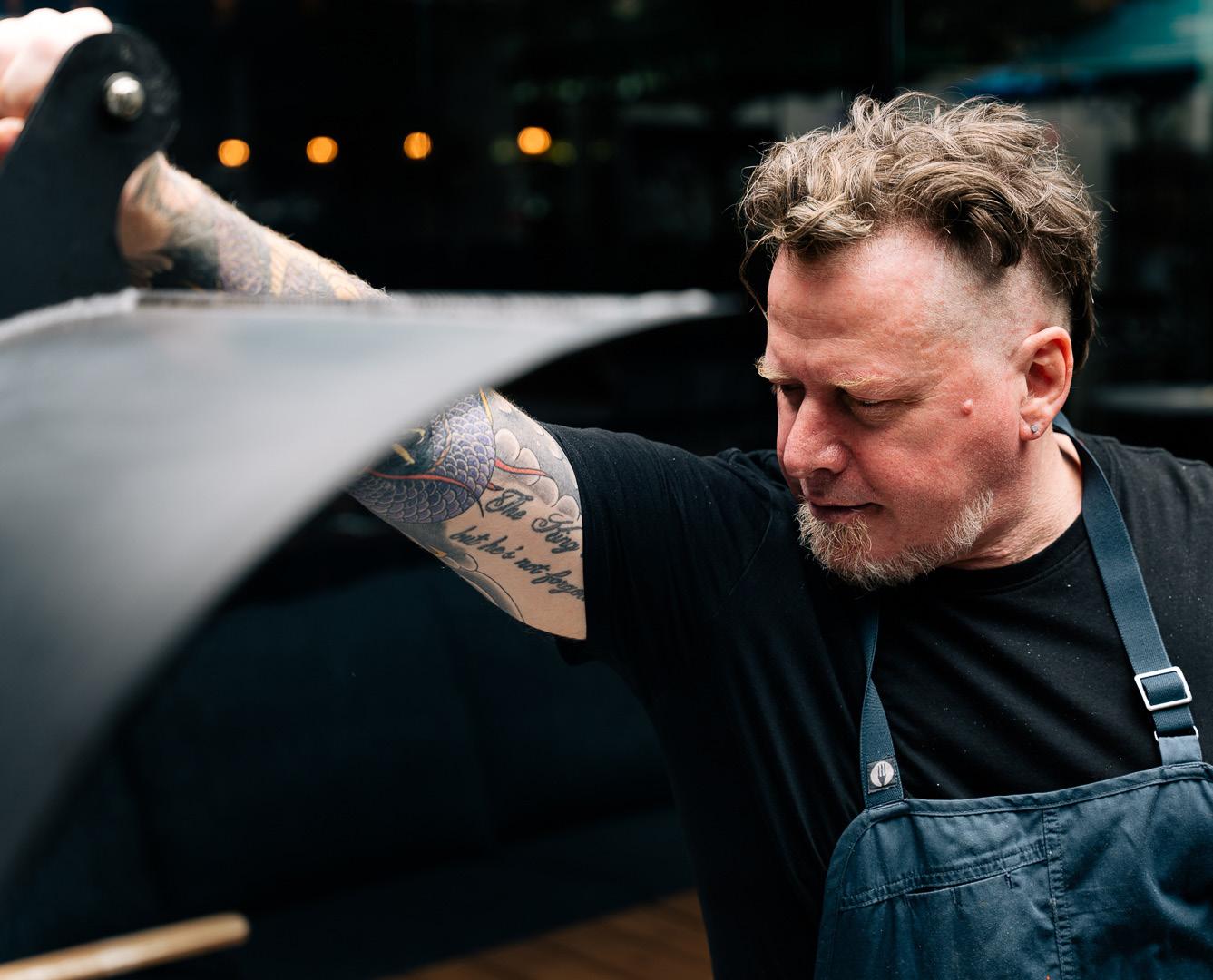
“Once that foundation is set, learning must become a daily habit for everyone,” he continued.
Breaking down the walls
For Duxton Pubs, better training starts with getting chefs out of their kitchens. Driven by group executive chef Brendan Boothroyd, the Heart of House Symposium has created space for collaboration, hosting a full-day face-to-face workshop where chefs from across the state can connect, share ideas and collaborate on the things that matter most in their kitchens.
Mark Condi, CEO of Duxton Pubs, said: “Coming from New South Wales to South Australia, the biggest challenge I’ve noticed here, particularly in rural and regional venues, is attracting and retaining people. That has really led us to focus on developing our own people.
“If you’re a head chef at Naracoorte, Penola or Whyalla, you can feel that you’re stuck out on your own. We have a support office in Adelaide, but that five hour drive does potentially make them feel isolated. The idea of the chef symposium is to bring our head chefs to Adelaide and get them all in the one room together.”
Boothroyd uses the symposiums to familiarise the group’s head chefs with the support office and the systems it’s implementing, and on a more practical level, facilitate workshops and discussions around
If we let something slide because we’re busy, our teams may interpret that as permission or acceptance of a standard not aligned with our values.
Alana
Primmer, Feros Group
Duxton Pubs’ group executive chef Brendan Boothroyd.
If
you’re a head chef at Naracoorte, Penola or Whyalla, you can feel that you’re stuck out on your own. The idea of the chef symposium is to bring our head chefs to Adelaide and get them all in the one room together.
Mark Condi, Duxton Pubs
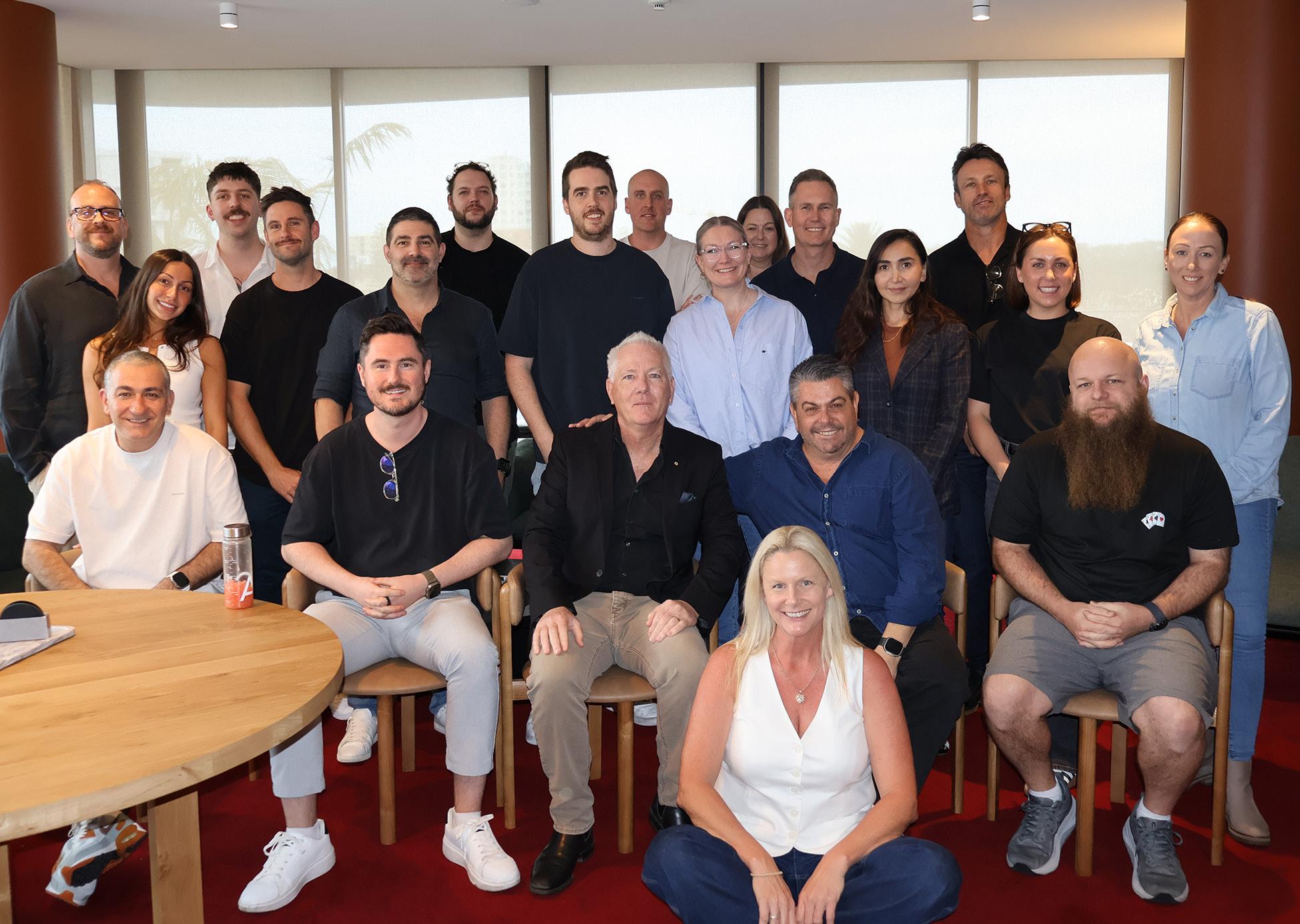
creating menus, procurement systems, health and safety and more.
The first symposium was held mid-2024 and as much as it gave chefs the chance to learn from each other, it also provided senior leadership with a valuable overview of how to strengthen connections across the group.
“I was shocked to find that it was the first time a lot of these chefs had actually met each other, and that’s the practical issue of distance. From that very first session, we noticed a huge increase in morale, but the biggest thing was the increase in communication between each other,” says Condi.
“We all learned a lot about the importance of staff training. It’s not just giving people skills, which is still an important factor, it’s actually about engaging with your team and building morale.”
The Heart of House Symposium runs alongside Duxton Pubs’ Emerging Leaders Program, which offers comprehensive leadership development through dual certification, mentorship, placements and hands-on training. The symposium will also inform new training initiatives across other areas of the business.
“The learnings from the chef symposium have meant that we now do quarterly venue manager sessions in the exact same format, but with more of them throughout the year. We’re also now about to do it with our bottle shop managers, and we’ll be introducing it to our gaming managers. We’ve realised the importance of getting these managers
into the same room, so we’ll be breaking the format down into the various divisions,” Condi added.
Unexpected leadership lessons
While some operators are bringing their teams together to share ideas within their own kitchens, others are looking further afield for inspiration.
Each quarter, Feros Group hosts group-wide licensee meetings with an agenda developed around a unique theme. Taking lessons from outside the trade, in September the group brought former NSW Police commissioner Mick Fuller in to offer a unique perspective on leadership.
Having led a team of more than 22,000 employees through the Covid pandemic, Fuller is experienced in managing large-scale operations, navigating public pressure and maintaining a great culture in these circumstances.
Alana Primmer, Feros Group’s group people and culture manager, said: “Our licensees lead very busy venues and cannot be in all areas of the venue. Mick’s insights into the distinction of management and leadership were helpful in providing a different perspective to our licensees. Many use management and leadership as interchangeable concepts, however, they are vastly different, and Mick was able to articulate this in a way that allowed our licensees to really reflect on how they manage and lead their teams.”
Feros Group’s licensees also enjoyed hearing Fuller’s take on leading through uncertainty

Former NSW Police commissioner Mick Fuller (centre) shared his unique leadership perspective with Feros Group’s licensees.
and change, and the role of communication in building trust and accountability. But above all, one of the key takeaways from the session was the simple phrase “what you walk past is what you accept”.
“This struck a chord as it reminded our licensees that every moment of inattention, every unchecked behaviour and every ignored standard, sends a message. If we let something slide because we’re busy, our teams may interpret that as permission or acceptance of a standard not aligned with our values. It’s sparked a renewed commitment to leading with intention, not just reacting to the day-to-day, but shaping it,” says Primmer.
Offering a new, non-traditional perspective has allowed Feros Group to turn regular meetings into something bigger: a way to inspire and connect, and the group hopes to bring in more experts from other industries.
“It allows our leaders to gain insight of a common theme or concept, such as management and leadership, from a completely different lens to the hospitality lens we look through every day. It can spark some new ideas that we would normally not have reached when focusing solely on hospitality experiences.
“We are currently discussing a highly regarded NRL coach as a guest speaker for a future meeting to speak to the theme of managing and leading high performing teams,” Primmer added.
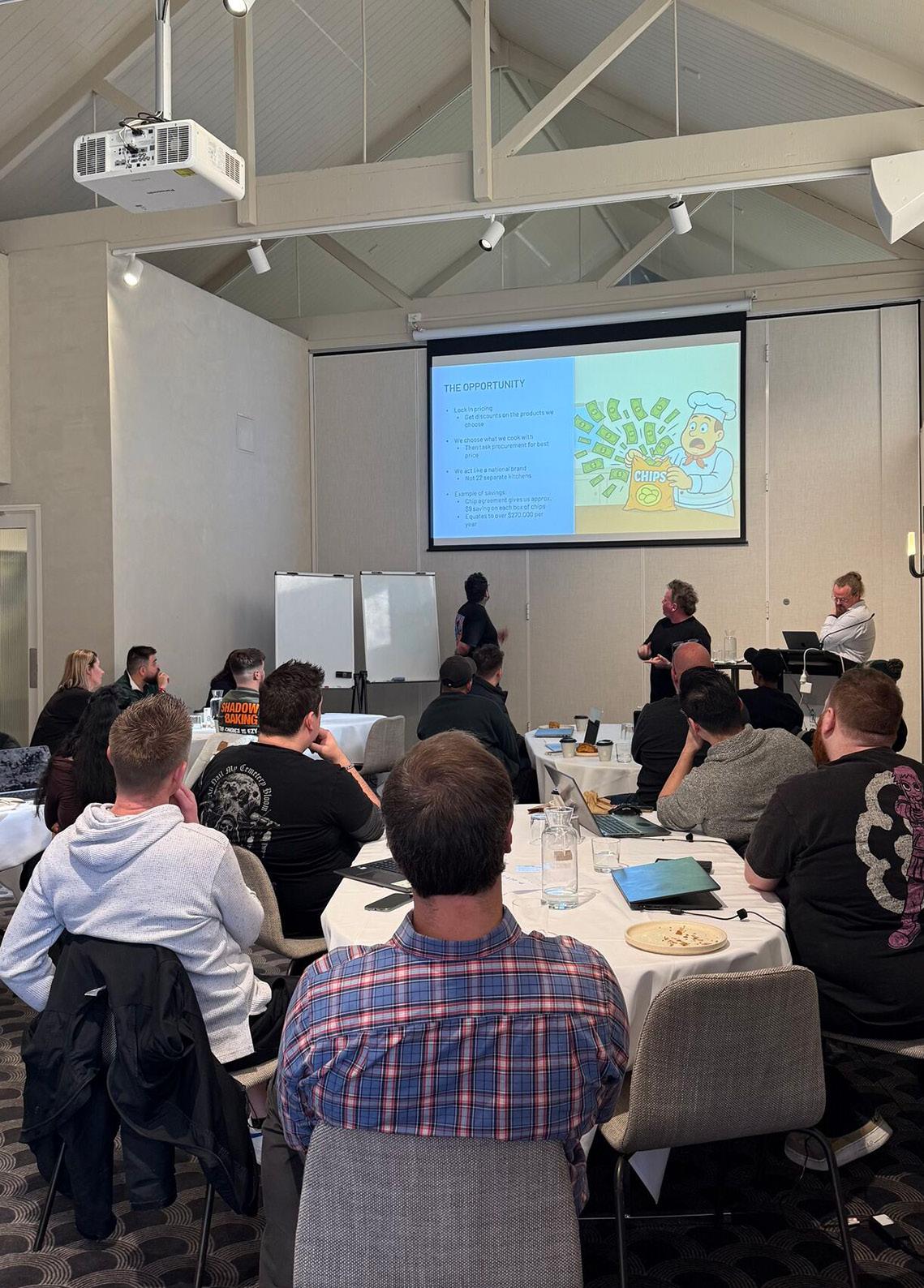

Duxton Pubs’ Heart of House Symposiums create space for head chefs to collaborate face-to-face.
Growing great pubs
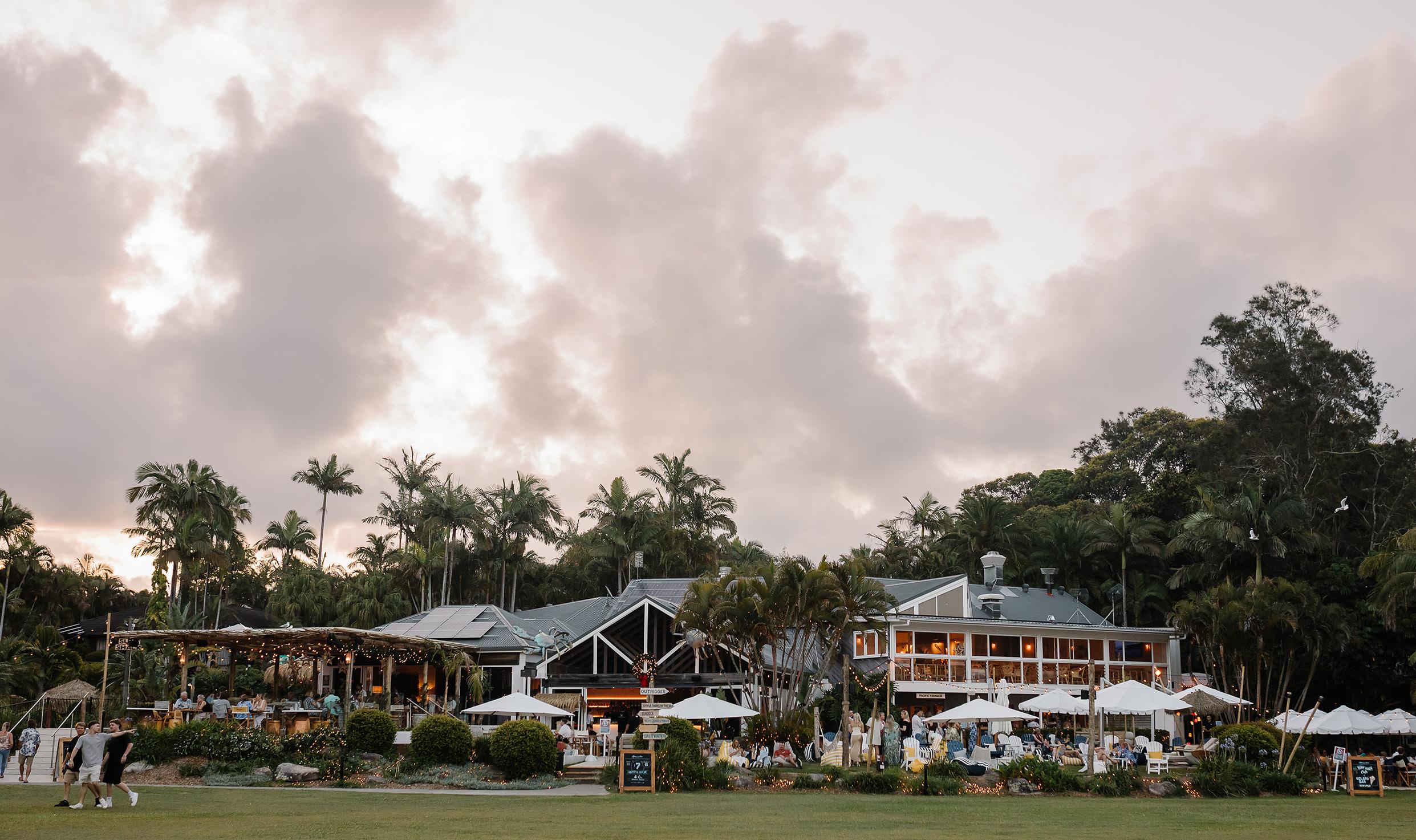
From a duty manager spotting losses to group operations manager, David Thompson’s career at Tilley & Wills has been built on hands-on experience.
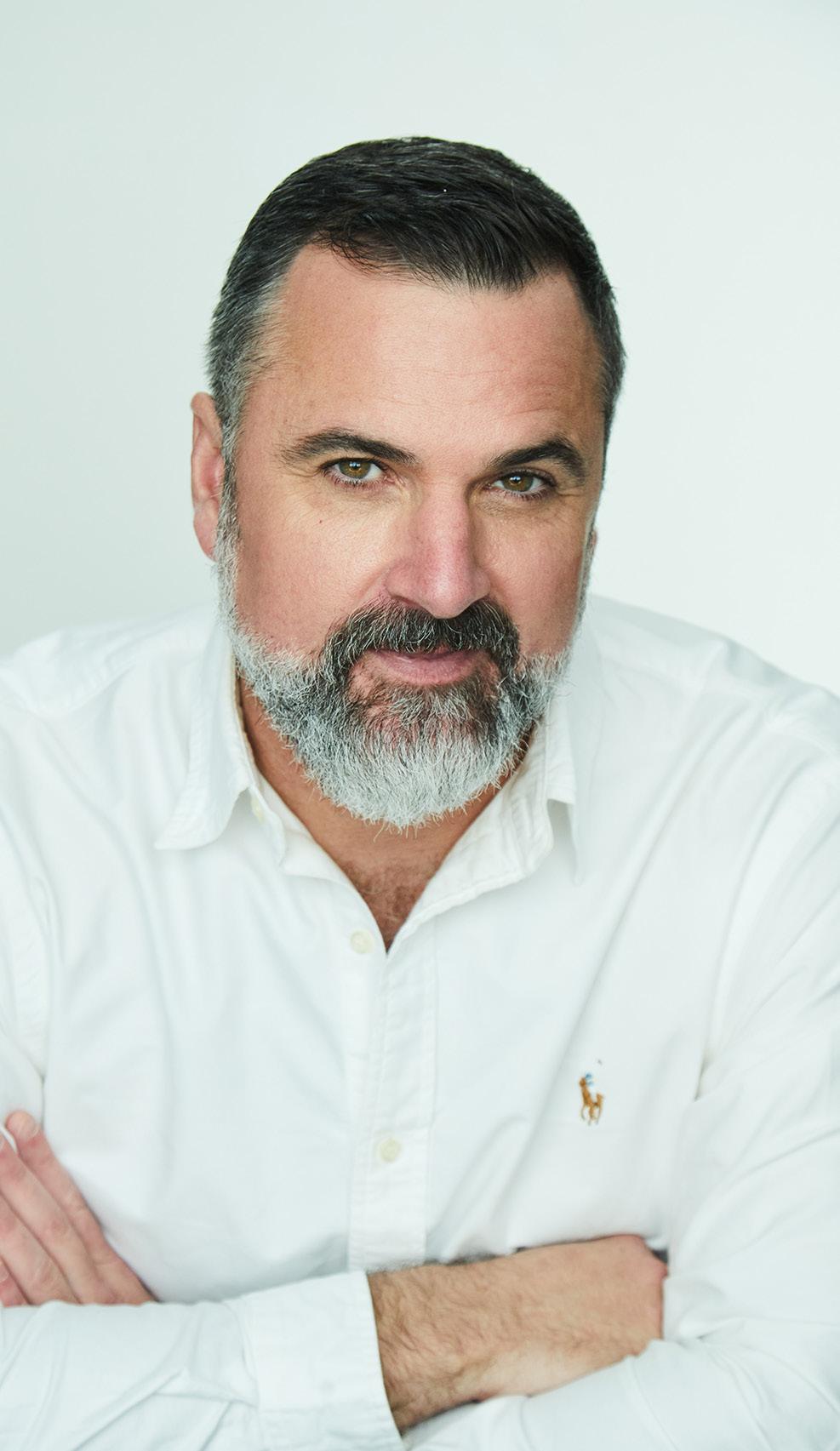
FROM AN early age, David Thomspon found his path in hospitality in a less than conventional way. He got his first taste of the pub trade at 14, dropped into the local scene by his mother.
“My mother identified pretty early on that I wasn’t a scholar, so when I was 14 she took me down to the local pub and said ‘he works for free until you want to pay him’ – I was thrown into the deep end,” Thompson told Australian Hotelier
He cut his teeth in pubs, restaurants and hotel bars before RSAs came into play, but his first real break came under the mentorship of hospitality specialist Jason Hirt at Brisbane’s Transcontinental Hotel, where he mastered the art of hospitality and putting customers first.
After moving around Brisbane and Sydney renovating and relaunching pubs, Thompson was working as a duty manager at the recently renovated Windsor on Park when he identified operational issues and potential losses.
“One night, I wrote Simon Tilley a proposal and said ‘you don’t really know me, I’ve worked for you for six months, but this is my background, and this is what I think you should do’. He walked in the next day and told me to do it, so I did –and then he met Nick Wills, and they became Tilley & Wills,” says Thompson.
While he left when the Windsor on Park sold, it wasn’t long before Tilley & Wills called Thompson back for a three-month renovation project – and nine years on, he’s risen through the ranks to group operations manager.
Hands-on hospitality
One of the things that has kept Thompson with Tilley & Wills over the years is the group’s steady expansion – a journey that has seen him take ownership of his own shares in the business.
“Tilley & Wills were growing,” he recalls. “We’d done a management contract for the Clovelly Hotel and The Buena, and by this stage I’d launched three venues for them while overseeing the Greenwood and Oxford Art Factory. I was in my 40’s and I told them I didn’t want to keep flipping pubs for other people, so either let me buy in or I’ll pass, and they let me buy in.
David Thompson
Tilley & Wills launched Aanuka Beach House in October last year in partnership with Accor.
“I’ve got a share hold in four pubs now and my own consultancy business – and it all started with my mum saying I was a bad student.”
Beyond his own aspirations, Thompson’s drive is seeing venues succeed and empowering staff in the same way that Hirst, Tilley and Wills have done for him throughout his career.
“Jason taught me hospitality, and Nick and Simon taught me business. I’d never really been exposed to the nitty gritty side of business – my job was always get it busy, make it cool, keep operations flowing, but Nick and Simon taught me another important side of hospitality, which is business,” he added.
“Since then, opening a pub in Queensland during lockdowns is probably one of the biggest achievements. The Prince Consort is a massive entertainment venue that we’ve now sold, but we picked it up for $20 million, spent $2 million on it, and sold it for $45 million.”
Over the years there have been countless achievements, but Thompson began his career with a passion for putting the customer first, and that same commitment influences his approach today. Looking to the future, his focus is on longevity and offering an allinclusive package.
“For us at Tilley & Wills, it’s about understanding the customer experience,” Thompson explains.
“I always look at businesses and say you need multiple revenue streams – you can’t just be relying on food and beverage, and we’re not heavily into gaming because I don’t think gaming in New South Wales has a long lifespan.
“We’d like to get into accommodation, and that’s why we’ve launched our partnership with Accor at the Aanuka Beach House in Coffs Harbour – we’ve taken over the hospitality side of the resort, and mid-next year we’ll take over the accommodation,” he concluded.
Brought to you by

Harnessing business intelligence
Offering valuable insights and underpinning decisions, business intelligence plays a key role for Tilley & Wills and its supplier Coca-Cola Europacific Partners (CCEP). For Tilley & Wills, this encompasses everything from scrutinising customer data to the evolving world of AI, and the group has already trialled phone-answering AI technology.
To advance its own business intelligence efforts, CCEP has invested heavily in the systems and people that power its business intelligence team over the last 10-15 years, working closely with its customers to share data and insights and drive mutually beneficial growth.
One such example is CCEP’s partnership with Summit Insights, offering customers a tool to manage their own transaction data and produce powerful business insights, allowing them to make more educated decisions.
Mitchell Lenaghan, director –licensed, CCEP Australia, said: “We believe strongly in the power of data to understand shoppers, how they behave and what drives their purchasing decisions. From supermarkets to convenience, to bars and pubs, business intelligence and the insights it derives gives users a competitive advantage.”
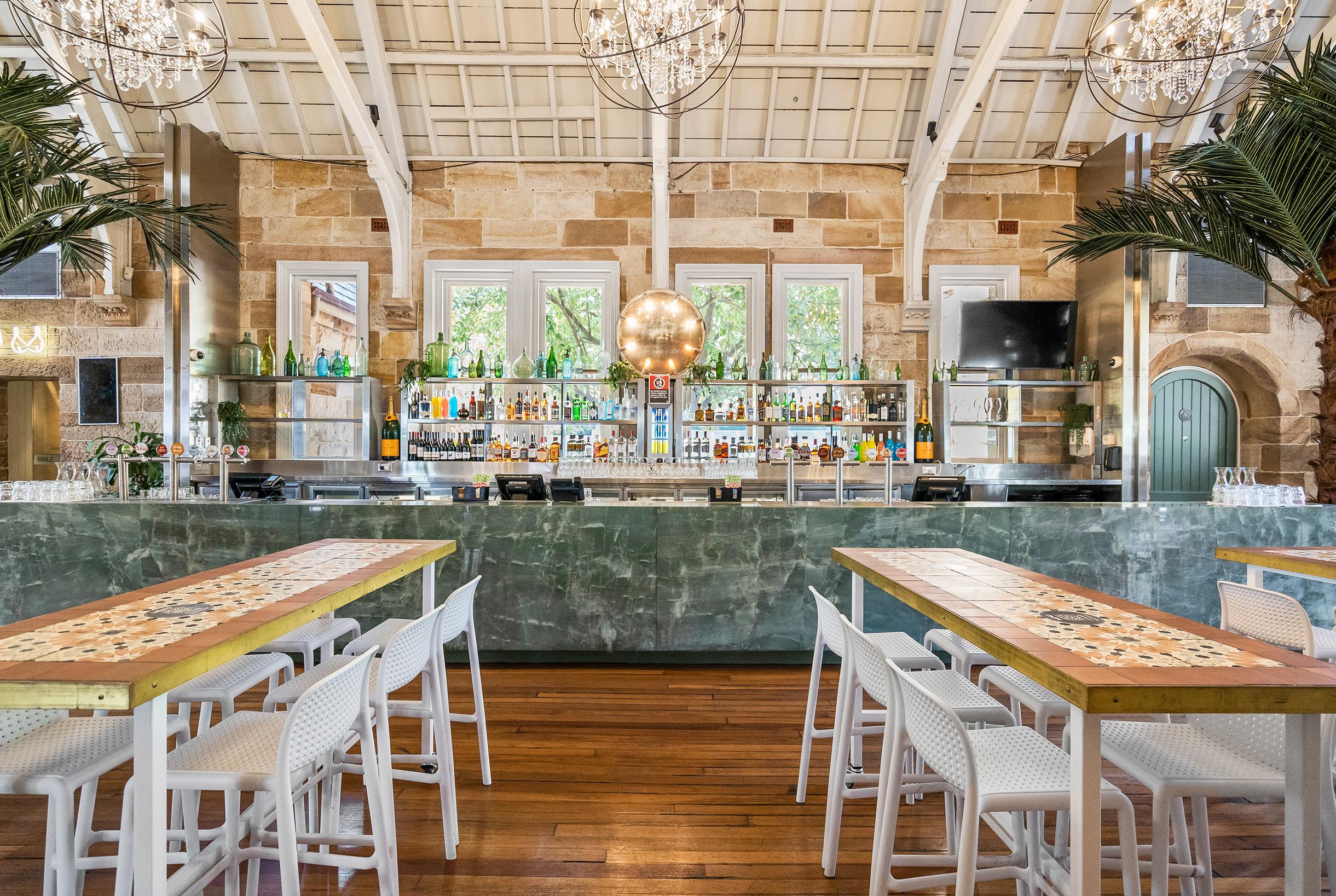
Simon Tilley acquired Sydney’s Greenwood Hotel in 2017.
What really makes a pub a community anchor?
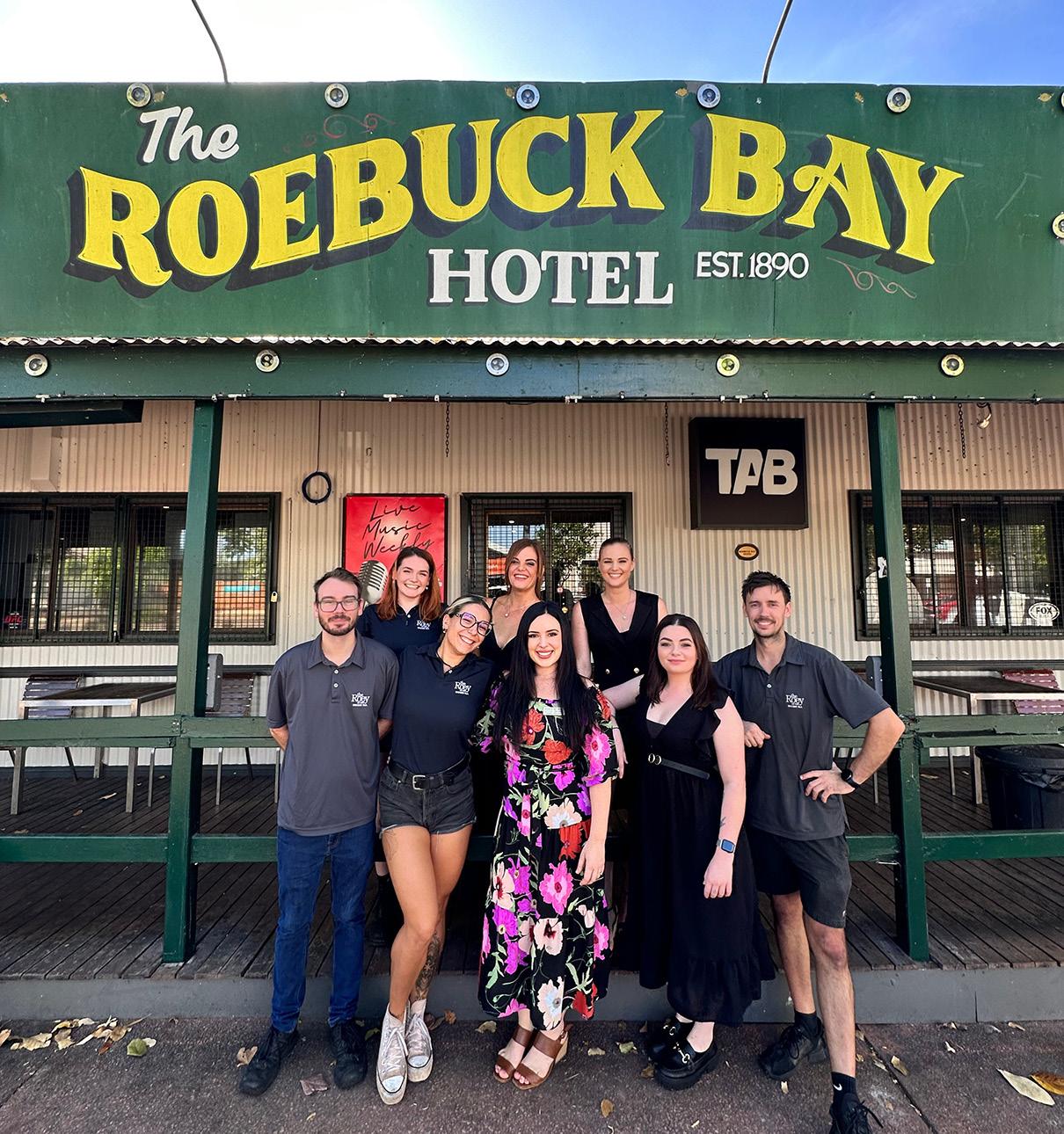
At Broome’s Roebuck Bay Hotel, deep community ties make it more than a place to go and have a drink.
THE AHA(WA) has named Broome’s Roebuck Bay Hotel, known affectionately as The Roey, a finalist for the Community Service Award at the 2025 Hospitality Awards for Excellence – one of six nominations for the venue and its staff.
These nominations reflect the venue’s contribution to the local community after investing more than $160,000 into local organisations, charities, and festivals over the past year. They also recognise the team behind these efforts, with general manager Tamara Burchell nominated for Venue Manager of the Year again, after winning the award in 2024.
“[The awards are] judged by industry specialists and show we are recognised on a state level for our local impact. It validates all the hard work we do and continues motivating us to keep going and raising the bar,” Burchell told Australian Hotelier
More than just another pub
Previously the venue’s marketing and events manager, Burchell began to drive community activity when she assumed the role of general manager three years ago, with the goal of celebrating culture and inclusivity. Originally from Sydney, she identified a need for change and took inspiration from the east coast on how to make it happen.
“I’ve really tried to develop different initiatives that make everyone feel seen. Pride is huge for us. We have one of the biggest regional pride celebrations in Australia. In a small town, sometimes there isn’t a space where people in
minority groups really feel comfortable. To us it’s about changing those ‘pub’ stereotypes and showing the community that we support them.”
Today, The Roey’s identity in the Broome community is rooted in being more than just a place to go and have a drink.
“It’s been here for over 100 years and had many evolutions and a super interesting and colourful history. But today it’s more. It’s a central meeting place that goes beyond a social venue.
“Pubs are public houses, right? They’re a meeting place for everyone, a cultural hub, and a first point of connection for visitors to Broome too. In regional towns especially, a pub plays a vital role in bringing people together, creating shared experiences. On a broader scope they’re about supporting local and for those venues that cater to diverse demographics, being an inclusive space,” Burchell said.
Fundraising for change
A big part of the venue’s contribution to the community is fundraising. Over the past 12 months thousands of dollars have been raised for Broome’s premier cultural festival, Shinju Matsuri; Broome Pride; the Kyle Andrews Foundation, Feed the Little Children, and local sport sponsorships.
“Fundraising is something we are incredibly proud of,” says Burchell. “The amount donated through raffles and even from businesses who show support is amazing. It’s cool to see what we’ve inspired. People want to give and give back and they’re finding a lot of satisfaction in that.
The team at The Roey have shared values in community and connection.
Join the thousands of industry professionals who read the Australian Hotelier newsletter. Scan here and subscribe for free.

Subscribe now for the latest pub news, sales, compliance changes, and innovations. Delivered to your inbox fortnightly!
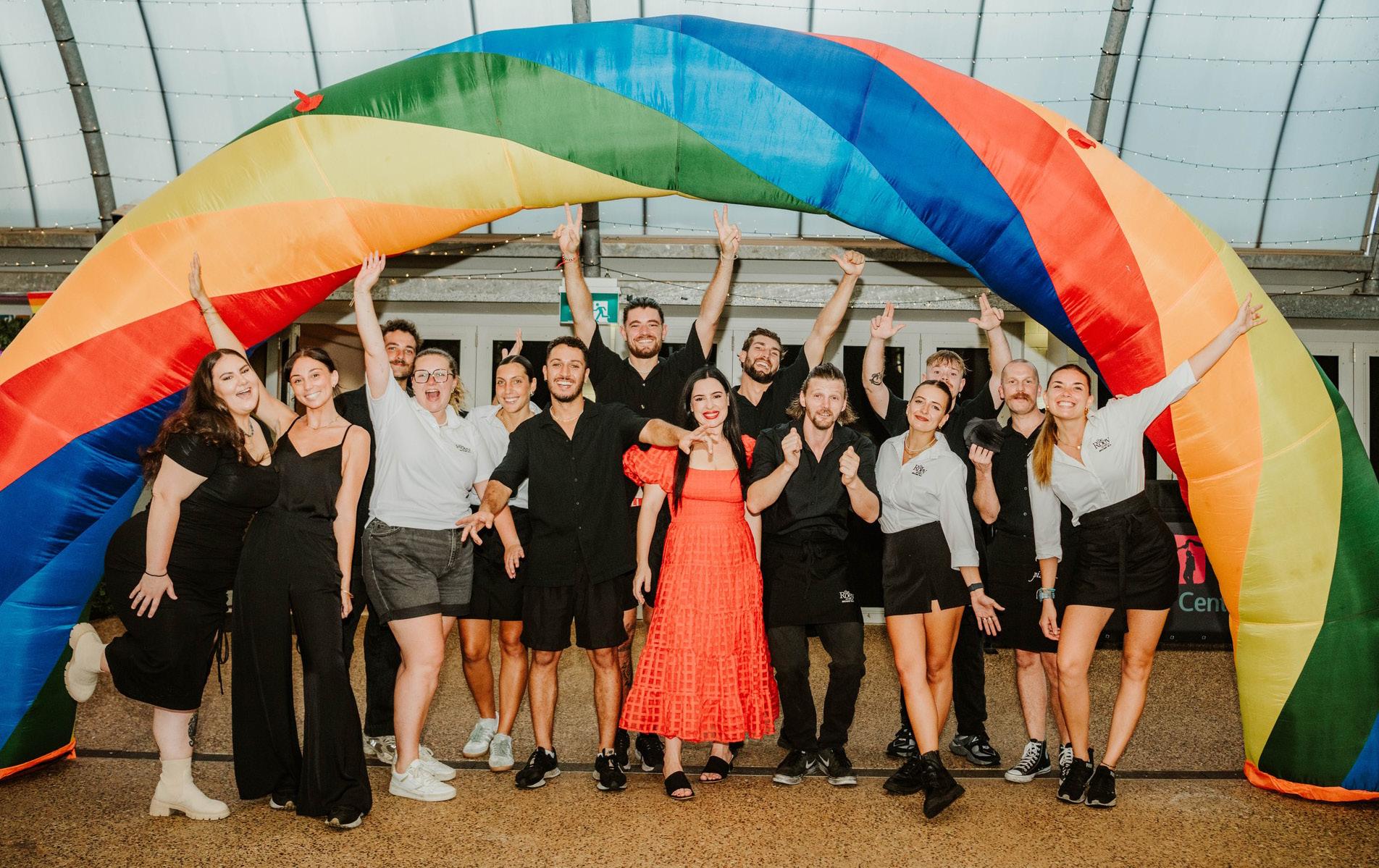
Pubs are public houses, right? They’re a meeting place for everyone, a cultural hub, and a first point of connection for visitors to Broome too.
Tamara Burchell
“Hearing back from the charities and seeing what the money actually allows them to do is incredibly rewarding especially when we remember that it came from a place where people like to come and have fun. It makes what we do feel far more wholesome and inspires our team too. Reminds them it’s so much deeper than the drinks over the counter,” Burchell continued.
“All of it flows back and benefits our pub, with community image, but also financially too, because you also get all these groups come and support the venue back. I think it’s quite circular. You support the community, the community supports you back.”
Empowering your team
Burchell emphasised that the team’s key to success has been their shared value in community connection and support.
“The management team, they are out there seeing the impacts of what we do, and it has created a culture that allows some our senior team to go off and even expand further on these initiatives, volunteer their time and grow as people.
“That creates buy-in from the staff because sometimes it can feel like a lot of extra work,
but we need them to be invested as well and know the vision that we’re trying to achieve.
“Different departments take different leads on fundraising or community partnerships. I think a major thing is we celebrate individual achievements. Especially with the leadership team, we keep promoting within and I think the empowerment comes from that trust that they can manage these projects and the recognition of what they’re doing,” Burchell explained.
At The Roey, community participation and feedback are incredibly important when measuring success. But above all, choosing causes and community groups that align with the pub’s brand and values have allowed the team to create meaningful change.
Burchell added: “I really hope that we’ve been a cornerstone in inspiring other people to create safe spaces and inclusivity. From what I can tell, I think we have.
“It doesn’t have to be big or expensive; it’s about being authentic to who you are. Whether you’re a business owner or leader, know your vision for your venue and what you’re trying to achieve, then be sure it aligns with your team as well. Empower them, motivate them, get them on board. There’s no ‘I’ in team, and if you are genuine, it comes naturally.”
The Roey hosts one of Australia’s biggest regional Pride events.
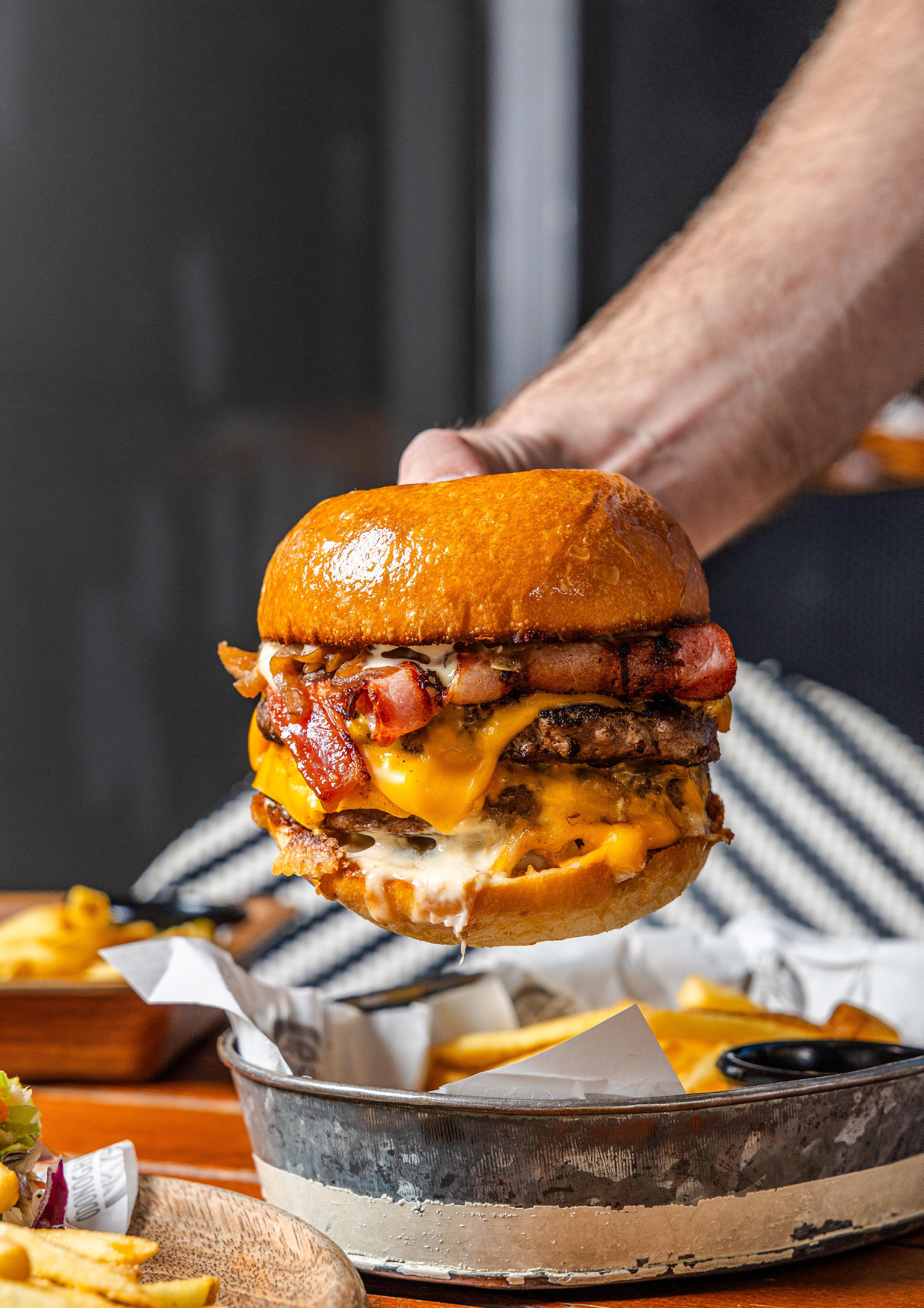
PARED BACK
Pub patrons are falling back on the classic dishes they know and trust
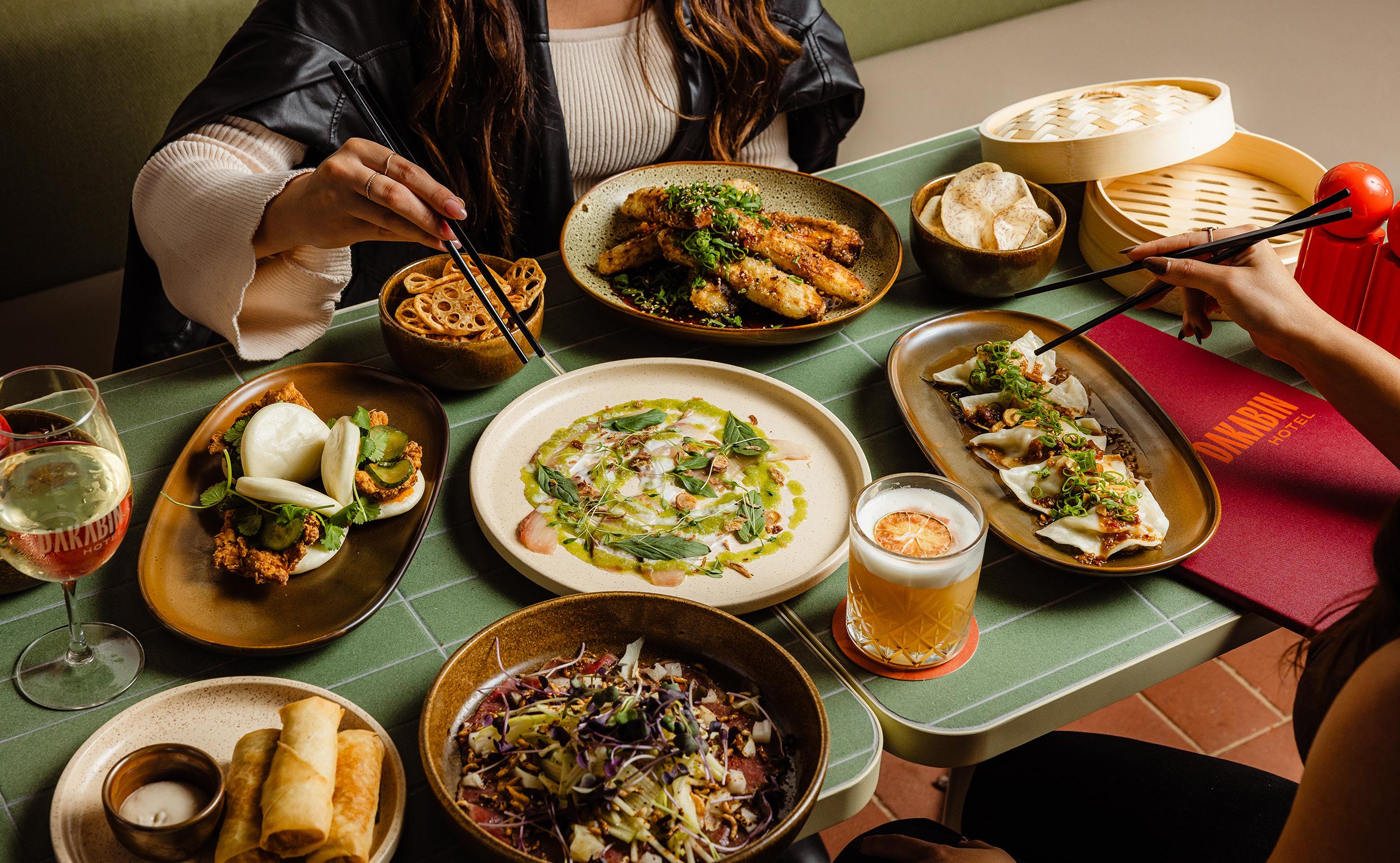
Wok this way
Asian dishes are becoming strong contenders to classic pub meals and bringing healthy returns, writes Holly Slater.
AUSTRALIAN PUBS are turning up the heat – literally. Across the country, operators are discovering that a sizzling wok can bring fresh customers, new revenue streams and healthy margins to their kitchens. From share plates to lightning-fast stir fries, Asian flavours are proving to be more than a passing trend: they’re a strategic opportunity.
Publicans report that patrons – particularly younger diners and families – are seeking lighter, vegetable-forward meals with a kick. Quick-cook stir fries fit the bill perfectly, offering vibrant colours and aromas that stand out on a pub menu often dominated by steaks, schnittys and burgers.
One of the reasons Asian-inspired dishes are resonating so strongly is that they hit the sweet spot between customer demand and operational efficiency. Stir fries, for example, are built around seasonal vegetables and versatile sauces, meaning they’re easy to adapt, quick to serve and relatively low waste. For operators, that translates into consistency, speed and margins that rival or outperform pub favourites.

The Dakabin Hotel’s Asian-fusion menu draws from Japan, Thailand, Indonesia, Korea and China.
Photography by Axis Productions.
It works best when it’s treated as a specific dining experience rather than trying to be everything to everyone.
Merinda Harris, JDA Hotels
Australian Pork’s research illustrates just how firmly stir fries have established themselves in the pub sector. Tracking menu data across the past eight years, they’ve found that the single most popular pork dish in pubs nationally is not roast or ribs, and as head of communications Lylle Blackstock puts it: “It might surprise you to know that the most popular pork dish in Australian pubs is in fact stir fry.”
For operators, this data signals more than just popularity; it reflects a shift in consumer expectations. Diners are looking for freshness, colour and vibrancy – and they’re prepared to choose those dishes over the classics. Pork, thanks to its versatility, has become a natural fit for this movement.
“Pork is versatile, takes on vibrant flavours and offers great value to the venue and the customer,” Blackstock explains, pointing to its ability to absorb spices and aromatics while staying affordable for venues.

Plates that pack a punch
The growing opportunity for Asian cuisine in pubs is evident from venues across the country. In Sydney, JDA Hotels has partnered with celebrated Thai chef Air Jantrakool to introduce Sita, a Thai restaurant concept housed within the historic Mountbatten Hotel. Merinda Harris, group marketing manager at JDA Hotels, explains that the goal was to move beyond the standard pub feed and create something that resonates with the local community.
“We know Sydney diners have refined tastes and are looking for affordable meals made with the best quality. With pub food across the city becoming more competitive every year, it’s about finding that point of difference and delivering something a little unexpected, without compromising on quality.”
The response has been overwhelmingly positive and patrons have embraced the menu’s vibrant flavours.
“It’s also been great to see some unfamiliar faces in the venue, with new customers from different demographics coming in. People who might not usually visit a pub, as well as those who work in the city looking for somewhere new for lunch. It’s brought a fresh energy and helped broaden the pub’s appeal,” Harris adds.
Signature dishes such as pad thai, pad see ew and Air’s butterfly pea dumplings have become highlights, celebrated for both their striking presentation and rich flavour.
For JDA Hotels, operational considerations were central to the concept’s success. Harris advises that introducing Asian or stir-fry dishes into a pub environment requires commitment.
“Diners in Sydney know their Asian food and have high expectations, so if you’re going to add those dishes to a pub menu, make sure the flavours are authentic, the quality is consistent, and it doesn’t feel like an afterthought. It works best when it’s treated as a specific dining experience rather than trying to be everything to everyone.”
From a financial perspective, Harris notes that the concept offers strong value and supports profitability while attracting a broader customer base. Looking ahead, she expects Asian-inspired dishes will become a standard part of pub menus, complementing drinks, adding value, and keeping venues competitive in cities full of dining options.
From parmys to pad thai
Meanwhile, in Queensland, the Dakabin Hotel demonstrates a different operational approach. Rob Comiskey, owner of the Comiskey Group, has implemented a one-restaurant, two-kitchen model, with a traditional Western kitchen on one side and a pan-Asian kitchen on the other.
“The goal was to bring big, exciting flavours to the suburbs without losing what people already love about their local. The Eastern menu lets us introduce bold, fresh dishes you don’t often see in a pub setting out here – it’s our way of adding something new and interesting for the community,” Comiskey says.
At the same time, the Western kitchen remains devoted to pub classics.
Running two kitchens simultaneously requires careful planning. Each side has its own specialised equipment, workflows and staff. The Asian kitchen relies on woks, steamers and high-heat burners, while the Western kitchen uses grills, fryers and char-grills.
“By giving each side its own tools and crew, we’re able to run both at the same time without compromise,” Comiskey explains. “When a parmy and a pad see ew hit the table together, they both taste like they should – true to their style and cooked by the right people.”
The menu has been designed to encourage sharing and exploration, with dishes like masterstock pork belly, crispy chicken bao buns, pork dumplings, yellow curry spring rolls, Thai green curry and crispy
Pork’s versatility makes it a natural fit for Asian dishes.

eggplant chips quickly winning favour with diners. Comiskey highlights that the menu’s success lies in its balance: “They give people something new to try but still hit those familiar comfort notes that make you want to order them again.”
Financially, the Asian menu is more labour-intensive than Western pub classics, requiring careful prep and attention to detail, yet the dishes deliver strong margins.
“The flavours and quality justify the work. At the end of the day, it’s about giving people a great experience while making sure it still stacks up commercially, and we’re really happy with where it’s landed,” Comiskey says.
Customer response has been encouraging, with younger diners and office workers visiting for Asian offerings, while regulars continue to enjoy traditional favourites. Covers have increased, average spend has lifted, and the venue has successfully broadened its demographic without alienating loyal patrons.
Comiskey’s advice to other operators mirrors the guidance from JDA Hotels: invest in expertise and commit fully to the concept.
“Since this was our first time venturing into Asian cuisine ourselves, we wanted to learn from the best. Bringing in the right expertise and understanding the craft has made all the difference in delivering quality and flavour that keeps people coming back,” he says.
Fresh and flavourful
For David Finlayson, group executive chef at ALH Hotels, that balance is at the heart of Crouching Monkey, a modern panAsian concept inside Perth’s historic Brass Monkey Hotel.
“We saw an opportunity to bring something a little unexpected to the traditional pub setting,” Finlayson says. “The venue’s look and feel lent itself to a vibrant, contemporary dining experience – and with my background in the Asian food scene, we wanted to create something that felt fresh but still familiar.”
Crouching Monkey captures the comfort and atmosphere of a great Aussie pub while introducing a menu built for sharing and discovery.
“Guests are really open to new flavours, as long as it still feels like pub food,” Finlayson explains. “They love the familiarity of a chicken parmigiana or a steak, but they also appreciate when a dish has a touch of freshness or spice that makes it stand out.”
Top sellers include sticky soy chicken wings, kingfish crudo with nam jim, prawns with miso butter, and chicken salad with wombok and sesame dressing – dishes that deliver punchy flavour and pair effortlessly with a cold beer.
“Asian-inspired snacks and share plates are perfect with a beer or cocktail; they’re made for grazing and conversation. It’s a natural pairing that creates a relaxed, social dining occasion.”
Finlayson says the key for any operator is knowing their audience.
“Be really clear about what your venue stands for. Balance is key – choose flavours or dishes that complement your existing offer rather than trying to overhaul it completely. Great food and consistency are what bring people back.”
The opportunity for pub operators
Across venues and cities, the evidence is clear: Asian cuisine, particularly stir-fries, can expand a pub’s appeal, attract new customers and support strong margins. By combining thoughtful menu design, operational planning, and high-quality execution, pubs can offer a dining experience that delights patrons and enhances profitability.
Sita, Dakabin Hotel, and Crouching Monkey collectively demonstrate that success in this space requires more than a nod to trends. It demands investment, skilled staff, and a commitment to authentic flavours. When these elements align, pubs are not just keeping pace with changing consumer expectations – they’re setting a new standard for what modern Australian pub dining can be.
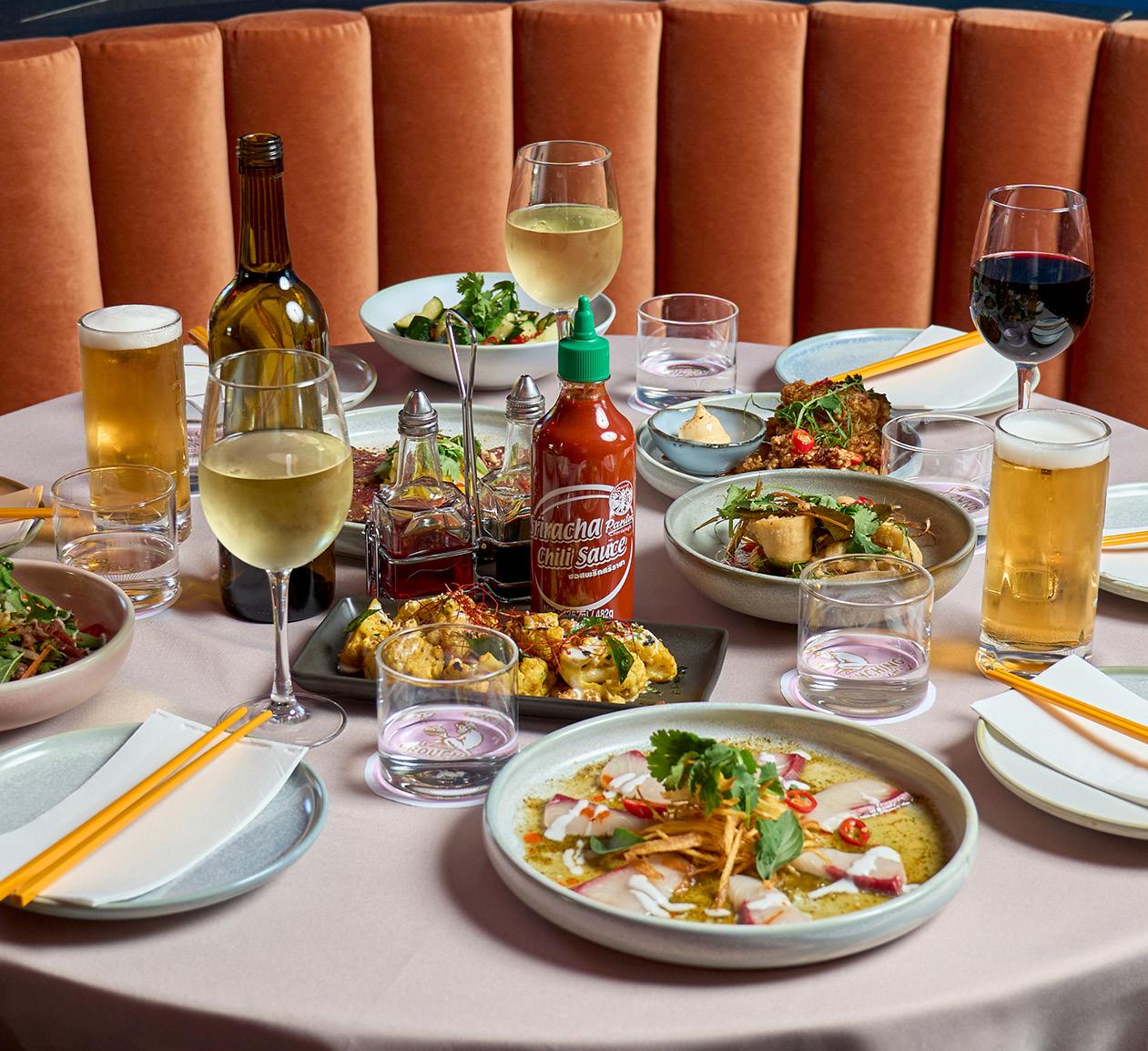
Hand-shaped butterfly pea dumplings are one of the standout dishes at Sita.
The menu at Crouching Monkey has been built for sharing.
Stir things up with a sticky pork stir fry
Seven out of 10 casual dining venues already have pork on their menu*. And it’s no wonder –tasty, delicious pork brings and an enticing twist.
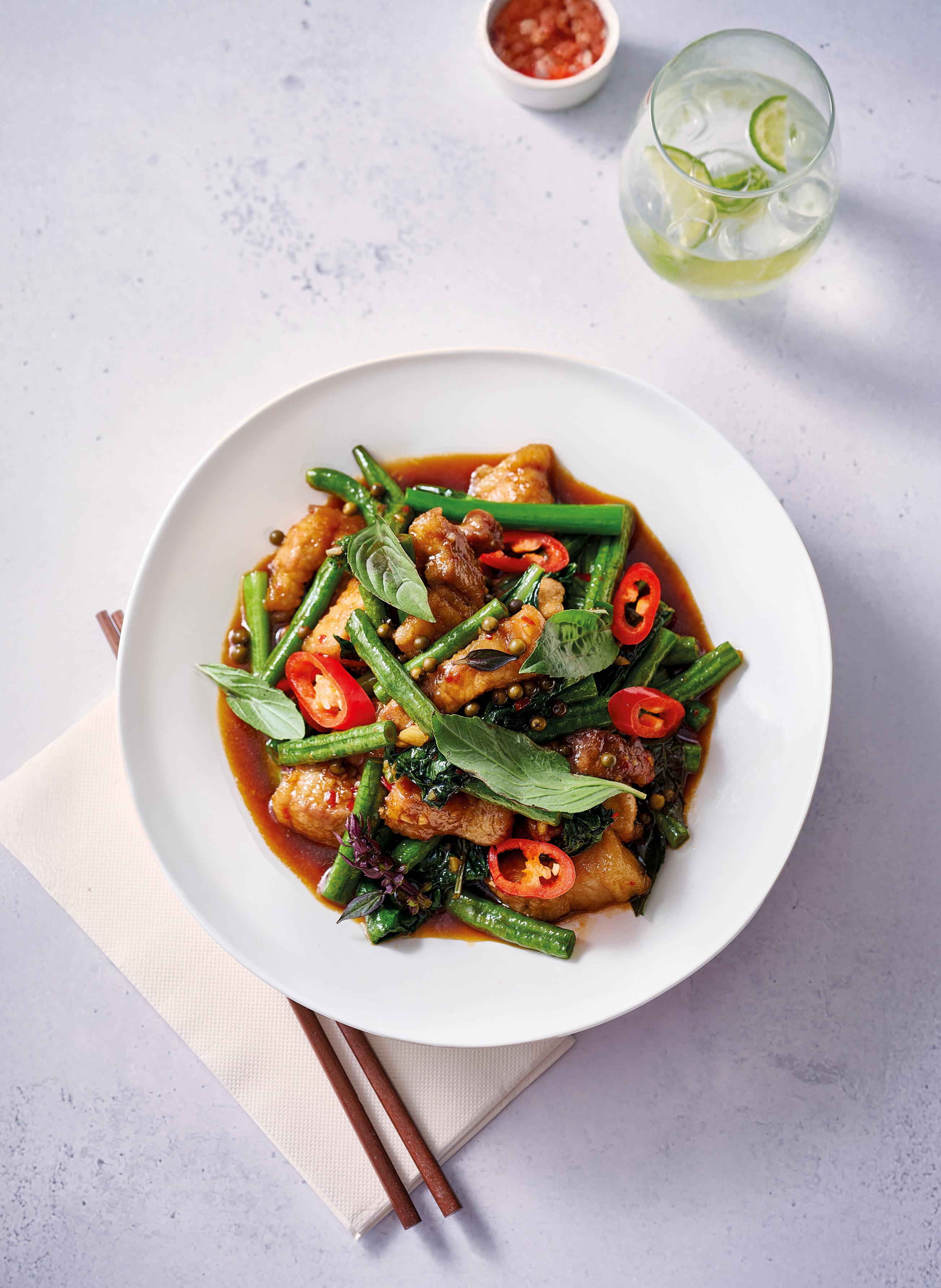
Stir fry is the most popular pork foodservice meal in casual dining**. So why not stir things up this summer with a sticky pork belly, snake beans, broccoli & chilli stir fry.
Get some pork on your menu
Storytelling on a plate
Blending Irish tradition and contemporary Australian dishes, Zengal Hospitality elevates the Irish pub experience through a focus on quality and authenticity. By Sienna Martyn.
ON THE site of the former Quiet Man Irish Pub in Flemington sits the recently rebranded and refurbished Auntie Annie’s Hotel, operated by Zengal Hospitality.
Founders Zenita O’Neill and James Gallagher have transformed the historic pub, known for its Irish charm and strong community ties, into a modern cornerstone of Melbourne’s Irish food scene.
Offering two distinct dining experiences – casual Auntie Annie’s and the more elevated restaurant Enbarr – the team said culture and authenticity are at the venue’s core.
“We’re not just another pub. When you walk in, you experience Irish culture from the get-go with honest Irish hospitality. Ireland has really elevated their food scene in recent years, so we want to bring that to Melbourne,” said O’Neill.
So far, the team says the community response to the menu has been extremely positive.
“The top sellers are the Irish dishes. It’s not the steaks or the parmas – it’s Irish that people want. They come in for that experience. And a lot of our staff are Irish, we’re Irish, people are getting something authentic,” said Gallagher.
Irish with a twist
The Auntie Annie’s menu delivers a modern twist on both Irish and Australian pub favourites. One of which is Annie’s spice bag, including crispy chicken pieces, capsicum, onion, spring onion and Annie’s secret spice mix, served with McDonnells curry sauce and chips – which O’Neill says is already a crowd favourite.
“In our other venue, Jimmy O’Neill’s, during Covid we were doing takeaways and one of our operations staff was from Dublin and told us about this TikTok trend called the spice bag. We started trailing it there and it went gangbusters. People asked us constantly whether we were bringing it here and we just couldn’t say no.”
She continued: “Our spice bag has the option of rice. Not a lot
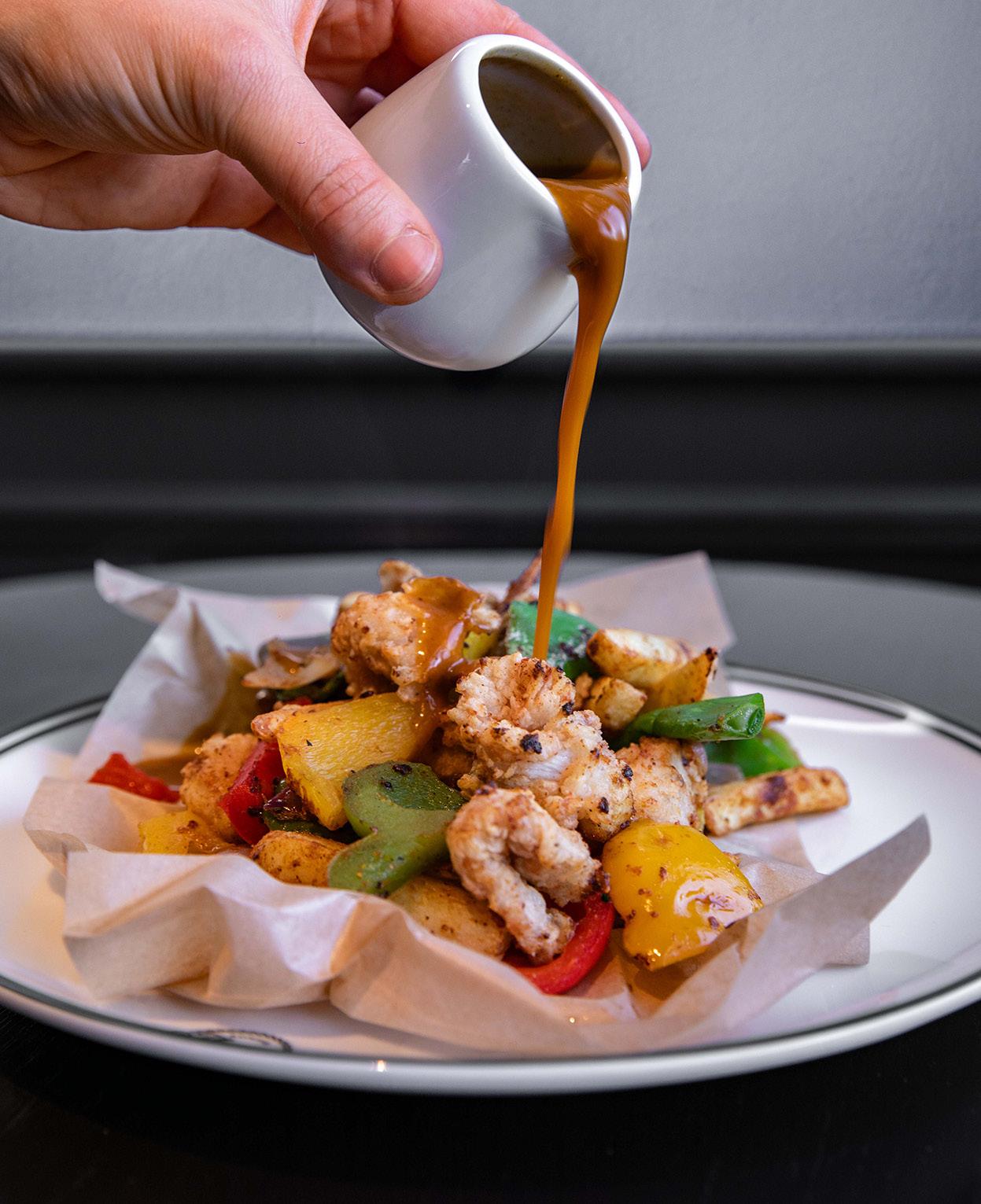
“The top sellers are the Irish dishes. It’s not the steaks or the parmas – it’s Irish that people want. They come in for that experience. And a lot of our staff are Irish, we’re Irish, people are getting something authentic.”
James Gallagher
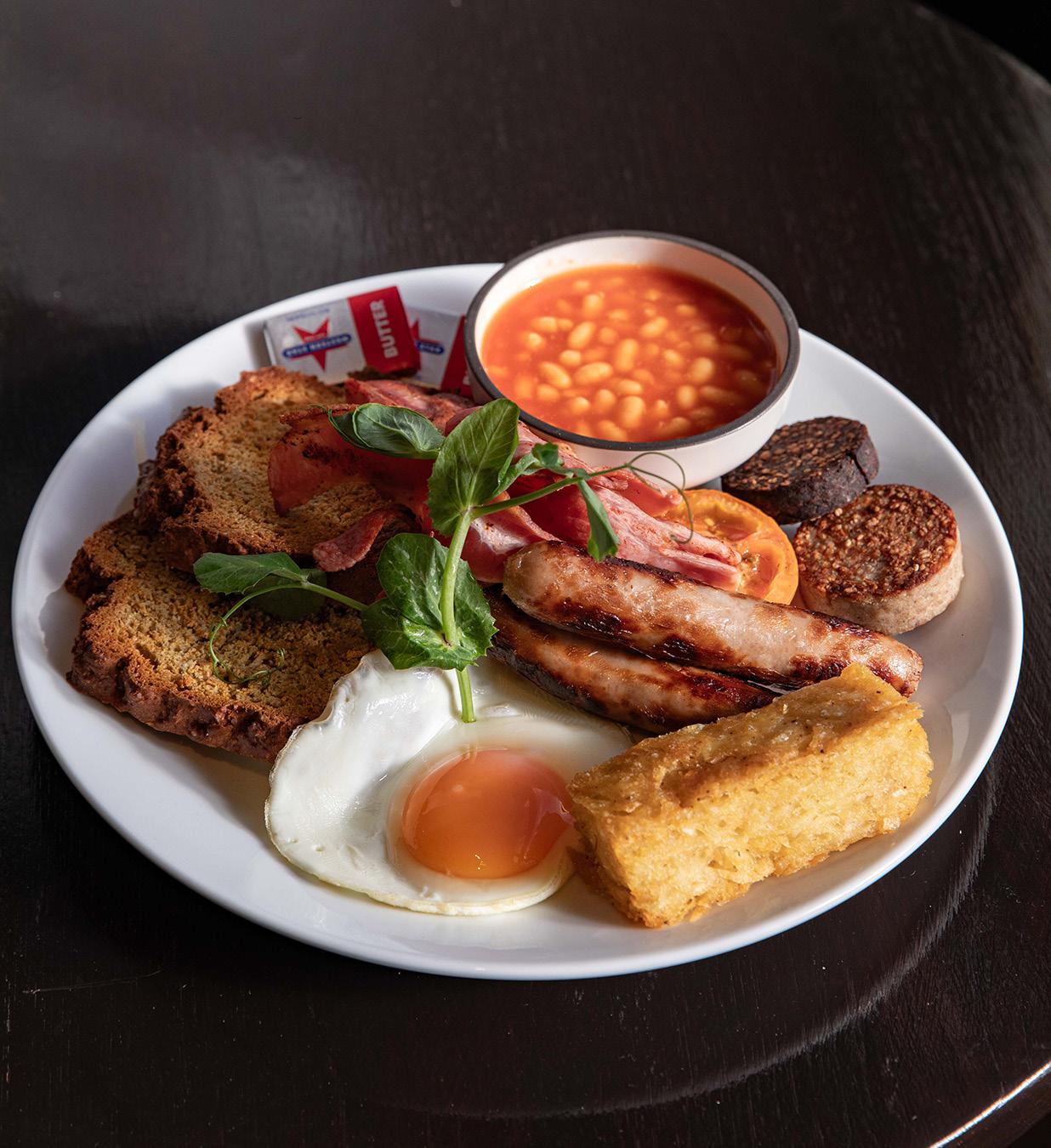
Annie’s spice bag is topped with McDonnells curry sauce.
Auntie Annie’s traditional Irish breakfast.
of venues do that. So, it’s half rice, half chips – a little bit of difference, and everyone wants to try it.”
Gallagher says the drunken ‘Jameson’ chicken, marinated in whiskey and served with Kerrygold butter mashed potatoes, pumpkin purée and Annie’s traditional gravy, has also been a crowd favourite and is a special nod to his ties to the venue.
“I was a chef here back in the day. I started around 2003, and then around 2008 I was the head chef. We constantly changed menus and tried new dishes, and that was one that just kind of stuck.”
Another unique point of difference and nod to Ireland is Auntie Annie’s breakfast menu running from 10am daily.
“We noticed that there wasn’t much choice in the area and this pub used to do breakfast, so we thought we would bring that tradition back,” O’Neill told Australian Hotelier.
The key menu item is the full Irish breakfast with bacon, pork sausages, black and white pudding, fried eggs, homemade potato rosti, grilled tomato, baked beans and wholemeal Irish soda bread.
“The full Irish is world famous. There’s no other pub in the city that we know that does a full Irish breakfast. We’re not revolutionising anything, it’s been done in the past, but if we are doing it, we are doing it well,” said Gallagher.
An ode to home
O’Neill and Gallagher said Enbarr’s menu is a more contemporary “ode to home”, with award-winning chef Declan McGovern leading the team in the kitchen.
“Irish food is a hearty meal on a plate. It’s storytelling, it’s always about a memory. For example, if you talk to an Irish person about their stew, everybody’s will taste different, because it’s a memory. It comes from family tradition. It’s the story the chef wants to share.
“The traditional Irish food goes back hundreds of years. But people only remember the last generation from their family. At Enbarr we want to connect with the traditions that have been passed down like pickling, curing, smoking, but with our own twist, so it’s more than pub grub that you’d find within any Irish pub in any city,” said O’Neill.
The founders agree that beyond a strong menu, it’s the Irish music, familiar smells of cooking, Irish whiskies on the shelf, Guinness on tap, and even the venue’s wine collection, that work to create an
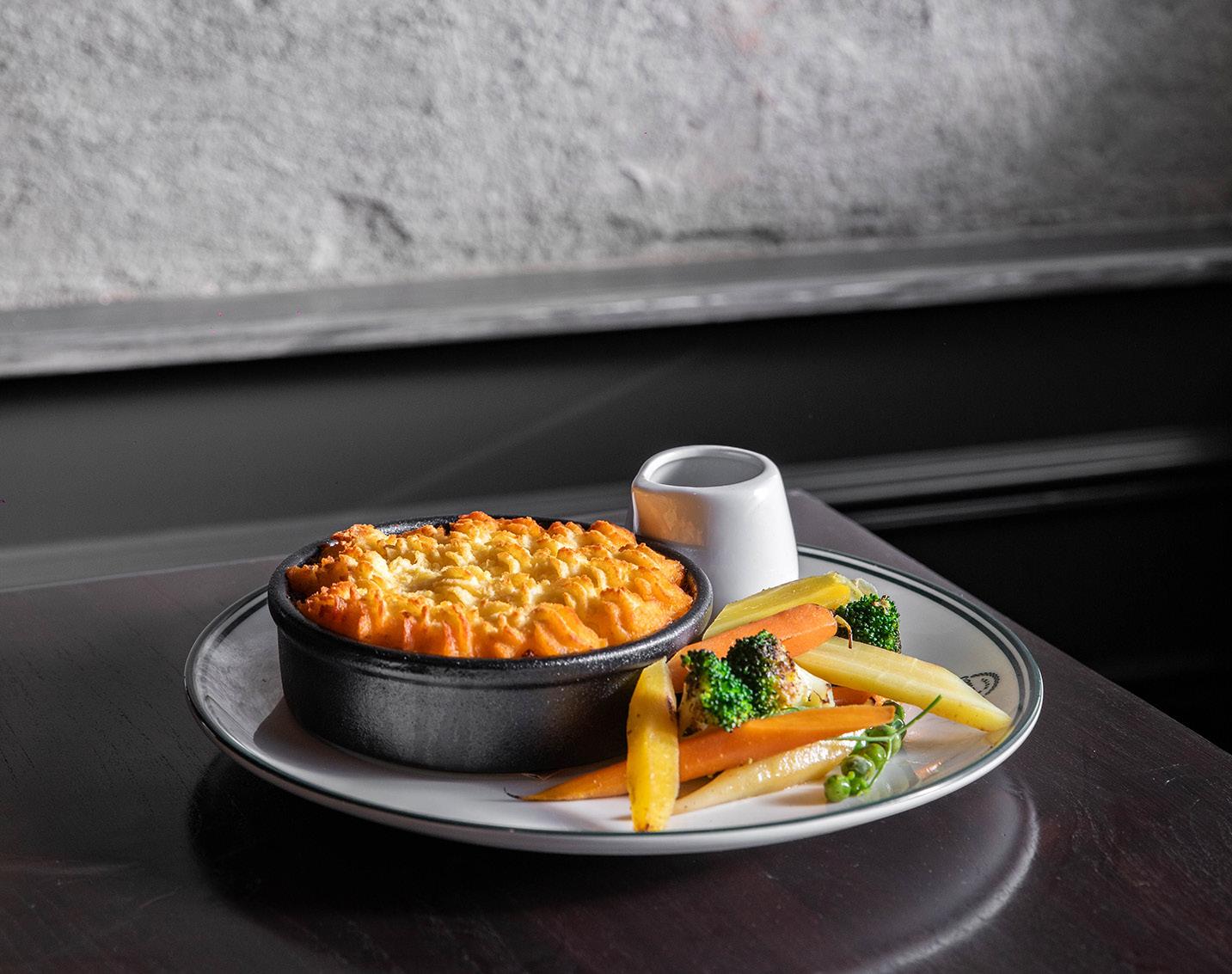

authentic experience – and upholding all of that is the comforting Irish hospitality.
“We like to host our guests. We like to do table service where we can even though it is a pub. There is a casualness to it, but with Enbarr we will bring that elevated service to go along with the menu.
“For us, Irish hospitality starts with having a chat. We’re not just seating guests and walking away. We find out where they’re from, what they’re doing for the day. It’s simple,” explained O’Neill.
Gallagher agreed, adding: “It’s not rocket science. But it does feel like sometimes it’s missing in this modern age of hospitality so we’re trying to bring that focus back with our staff.”
Irish food is a hearty meal on a plate. It’s storytelling, it’s always about a memory.
Zenita O’Neill
The oven-baked shepherd’s pie is a home from home favourite.
Enbarr head chef Declan McGovern and Auntie Annie’s head chef Deepak Saini plating Annie’s Sunday roast.
Back to basics

With the cost of living continuing to climb, diners are turning to pub classics for value, while operators face the challenge of keeping prices affordable without compromising on quality. By Ivy Fleming.
SOARING COSTS at the supermarket mean a night out at the pub can sometimes be just as affordable as cooking at home. In a climate of cautious consumer spending, customers are falling back on the meals they know and trust –pub classics like the parmy, schnitty and lasagne.
For operators, the challenge lies in maintaining quality and value while managing increasing expenses. Many are refining menus to focus on what truly sells, finding efficiencies in the kitchen and strengthening supplier partnerships to keep costs in check.
Balancing cost and quality is something Redcape Hospitality’s general manager of food Ben Turner knows well. His 30-year career spans Michelinstarred kitchens in London and more than a decade at Matt Moran’s two-hatted Aria in Sydney.
At the Pub Leaders Summit earlier this year, Turner spoke about how consumers remain budgetconscious even as spending returns, so pubs need to deliver both quality and value.
“What we’re seeing across Redcape’s venues is that when times are tough, customers gravitate even more strongly to those honest, hearty classics because they deliver comfort, value and a sense of connection,” Turner tells Australian Hotelier
He explains that Redcape has refined its menus to focus on quality, allowing it to maintain key price points for customers. The schnitzel and parmy are the top performers across all of the operator’s pubs, from Townsville to Bendigo.
“We focus on the dishes that drive sales and make sure they’re priced right for customers while remaining sustainable for the business,” he says.
“Schnitzels and parmys are menu heroes, so we work closely with suppliers to secure strong pricing on high-volume ingredients like chicken and cheese.
“We see the classics not just as pub staples, but as the heart of Australian hospitality. Our goal is to set the standard for pub dining – generous, honest food that feels familiar yet delivers on quality every time. By investing in our people and focusing on the
Lasagne has quickly become a menu staple at the Bat & Ball Hotel. Photography by Angus Bell Young.
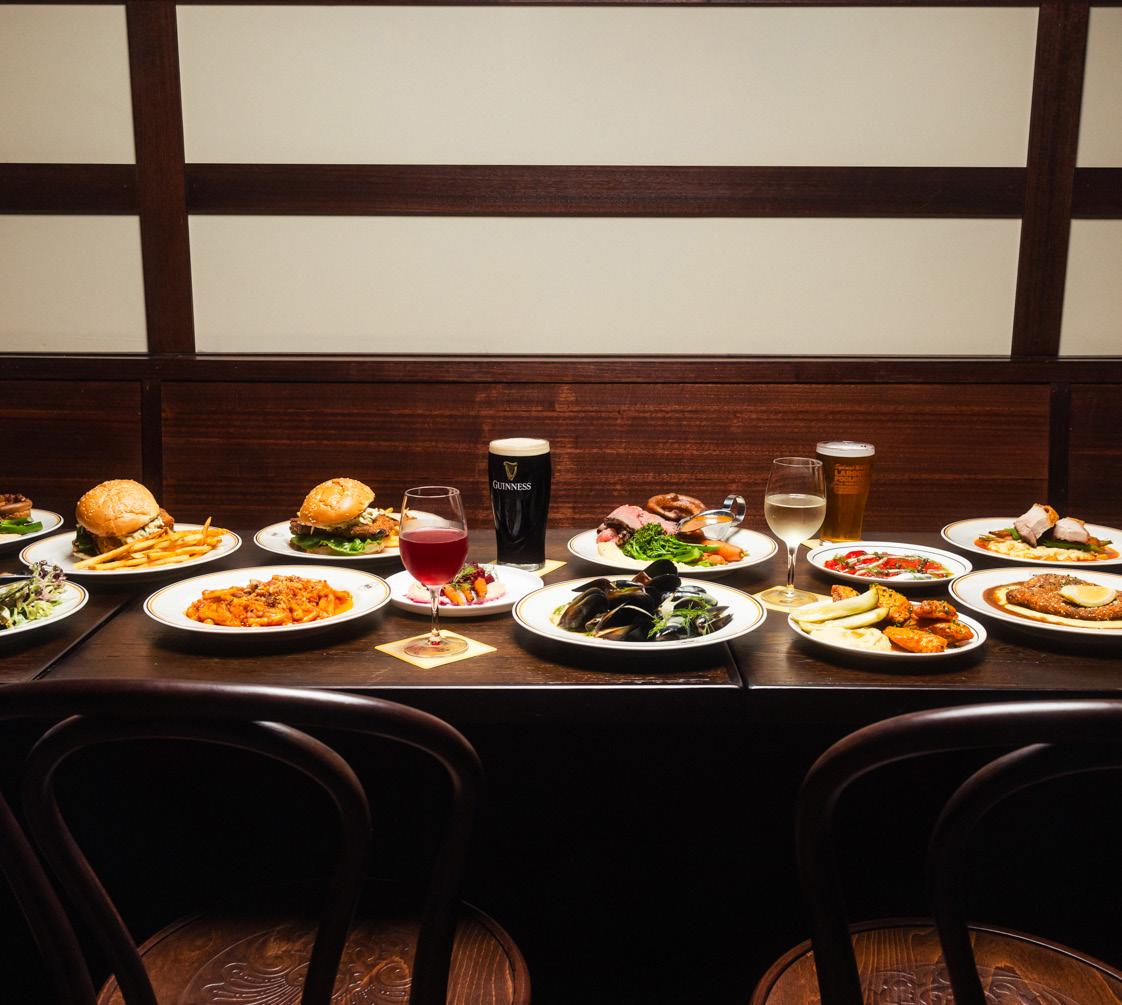
customer, we’re building a group where pub food leads the way in the industry.”
He explains that the recipe for getting pub classics right is simple: keep dishes consistent, use quality produce prepared with care and invest in chefs through training and clear career paths. A motivated team, he adds, brings both pride and consistency to every plate.
Being on top of controllables is critical and this is something he also spoke about at the Pub Leaders Summit.
“It’s the small things that add up: portion sizes that are right every time, prep processes that minimise waste and labour, and using products smartly so nothing valuable ends up in the bin.
“Rising costs force us to be really disciplined – portion control, waste reduction, smart menu engineering and making the most of our group scale with suppliers,” he continues.
“At the same time, we invest in training and consistency, so our chefs understand why those basics matter. It comes back to team culture. If your chefs understand the ‘why’ behind those controls, they own them.”
Communicating with suppliers about volumes allows Redcape to negotiate value while protecting quality.
“We need consistency and they need reliability. Working at scale across multiple venues helps, but it’s the relationships that make the difference. That’s how we protect the customer experience while keeping an eye on costs.”
Turner says pub staples set the benchmark for great, accessible hospitality.
“Classics shouldn’t be overlooked. They sit at the heart of the pub experience, and when they’re done well, people keep coming back.”
Value meets quality
Only Hospitality COO Tony Pantano, whose group operates venues such as the Beehive Hotel in Hawthorn, says success in tough times comes from working closely with suppliers, maintaining quality and creating an experience that makes customers feel they belong.
“When you give a value proposition, the customer thinks, ‘I can’t make it at home for that price, that’s good value’,” Pantano says.

TASTE OF SUCCESS
Whether it’s a parmy, pizza or lasagne, the cheese can make or break a pub classic. According to Mark Normoyle, executive chef at Fonterra Oceania’s foodservice business Anchor Food Professionals, more venues are turning to ready-to-use blended cheeses for their consistency, versatility and extra punch of flavour.
Normoyle says a mix of 80 per cent mozzarella, 15 per cent cheddar and five per cent parmesan delivers the ideal balance, combining the melt and browning of mozzarella with the richness of cheddar and the sharp finish of parmesan. He adds that pubs are often judged on their parmigiana, with mozzarella being the cheese that ties it all together through its stretch, coverage and golden melt without the need for oil.
For lasagne and other baked dishes, he recommends Tasty shred, which holds up well to moisture, melts evenly and finishes with a golden crust. His tip for pizza is to cook the base with mozzarella and finish with parmesan for extra flavour.
“A key focus for a smart chef in a busy kitchen is to minimise the number of ingredients that need to be ordered and stored, and maximise the use of every ingredient,” Normoyle says.
“Using a high-quality shredded cheese across multiple dishes is key to minimising wastage and maximising consistency.”
The Bat & Ball Hotel is all about well executed classics.
Photography by Angus Bell Young.
The chicken parmy is the top performer at the Beehive Hotel.
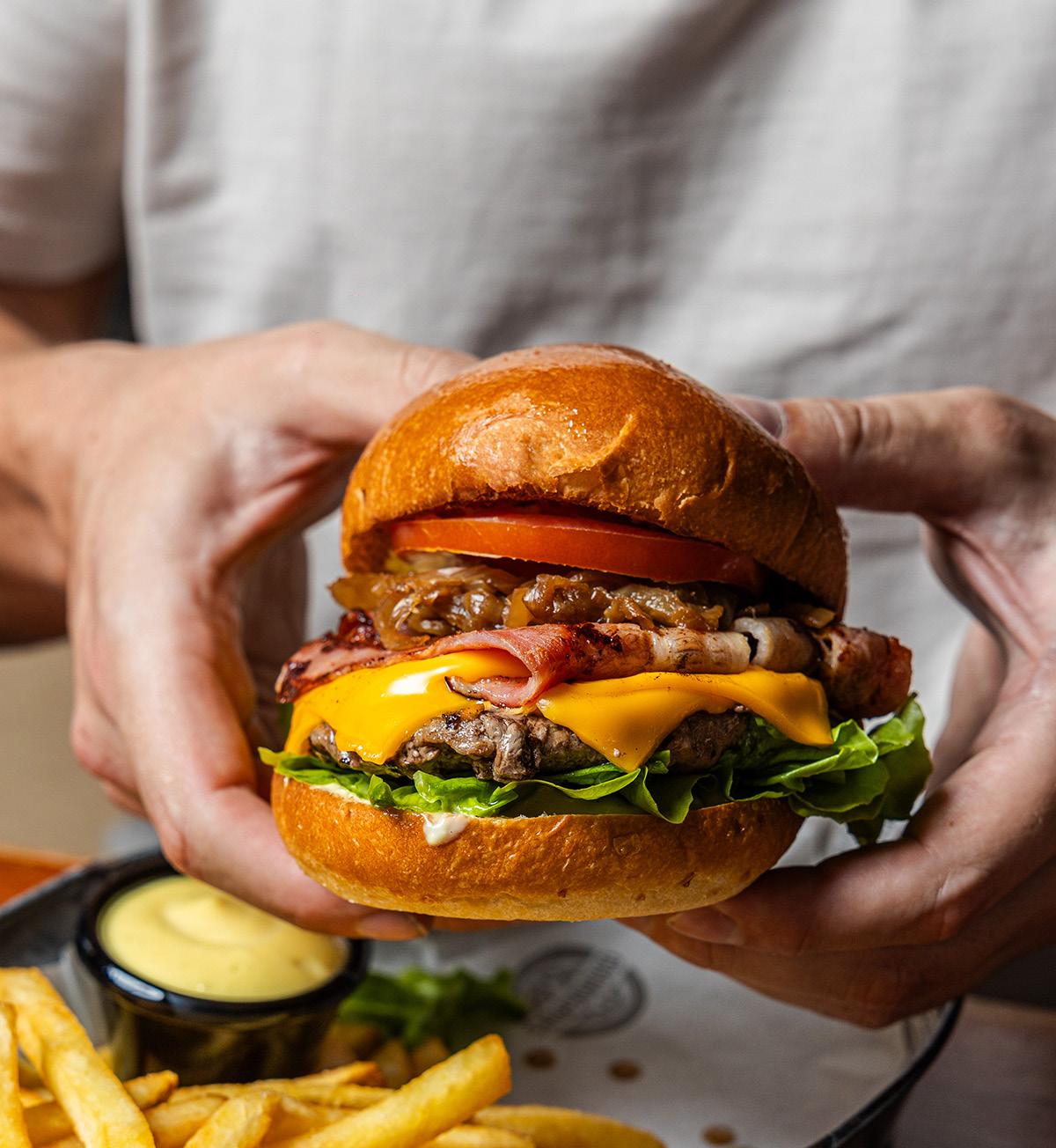
Pantano and Only Hospitality director Julien Moussi spearheaded the revival of the 150-year-old Beehive Hotel last year, making the Beehive Classics menu central to its food strategy.
“The Classics menu has always been the focus – it’s a local pub and we wanted to have the nostalgia of what pubs once were,” Pantano explains.
Sales data from Only Hospitality shows the strength of the Classics menu, which represents 60 per cent of all main meal sales and 30 per cent of total food sales across the group. The parmy (“we call it parma in Victoria”) remains the top performer, contributing over half of Classics sales, with the chicken schnitzel close behind at 20 per cent.
“With our parma, the point of difference is combining three cheeses – mozzarella, pecorino and cheddar – the pecorino brings a sharp bite to it and elevates the experience for the consumer,” Pantano explains.
Eggplant lasagne has been climbing up the ranks in the Classics menu, which Pantano suggests is less about a rise in vegetarianism and more about diners becoming increasingly conscious of healthier eating.
Beyond keeping customers happy, Pantano suggests that operators also need to work closely with suppliers to balance quality with cost.
“It’s about working with your suppliers and demonstrating your commitment to drive sales of the product. By working with shorter payment terms, we’re able to give suppliers quicker cash flow and, in turn, they’re often able to pass on lower prices to us.
“Even something as simple as adjusting payment terms with suppliers can help us keep prices steady for diners while still using quality ingredients.”
He adds that activation plays a big role in keeping venues buzzing, with raffles, themed nights and community events helping to create atmosphere, connection and return business.

It’s a matter of trust
That same philosophy of trust and consistency runs through the Bat & Ball Hotel, where the century-old venue has been brought back to life with a menu of well-executed classics that keep regulars coming back.
Located in Redfern, near major Sydney sports and entertainment venues, the Bat & Ball Hotel serves a discerning crowd that knows its classics and expects quality on every plate.
“You build trust with the basics – if you do the classics right, then you can expect people to trust you to do everything else right,” executive chef and co-owner Cameron Votano says.
“People almost want to be able to order a schnitzel or steak without having to read a menu,” co-owner, licensee and venue manager Rachael Paul adds.
“They know we’re doing the classics really well, so next time they visit, they might try something a little out of their comfort zone, which gives us a bit of scope to try out new things.”
Votano says he focuses on keeping each dish simple, using just a few key ingredients and adding a touch of uniqueness to make it stand out. For example, steak is complemented by a variety of sautéed seasonal greens with chimichurri, while Diane sauce is “old school, but can be done right”. The schnitty is brined, coated in the pub’s own crumb mix of oats, quinoa and garlic powder, and served with housemade mash and KFC-style gravy.
His personal favourite, the lasagne, combines dry beef, sausage and plenty of pancetta.
“We cook it really slowly, making sure the sauce caramelises before adding the vegetables.
“Everyone’s mum makes the best lasagne, and you can’t compete, but you can offer something different – you can’t be afraid to try new ideas,” he adds.
Votano admits he never expected the lasagne (normally priced at $27, but a $17 special on Tuesdays) to gain the following it has.
He says that cost management starts with suppliers who can provide both value and quality. Equally important is patience, careful use of time and resources and being versatile in the kitchen.
A focus on classic pub fare helps Redcape Hospitality deliver quality and value across its portfolio.
Cheese can make or break a pub classic.
Toast to taste. CELEBRAT E G O OD TIMES
Summer is a time of celebrations. So to keep your kitchen prepared, you need quality ingredients that can rise to the occasion. Try Mainland’s Tasty Shredded cheese, expertly crafted and matured for 12 months for a deep, full-bodied flavour. It’s perfect for sprinkling, melting or mixing, making your dishes shine through a season of celebrations.
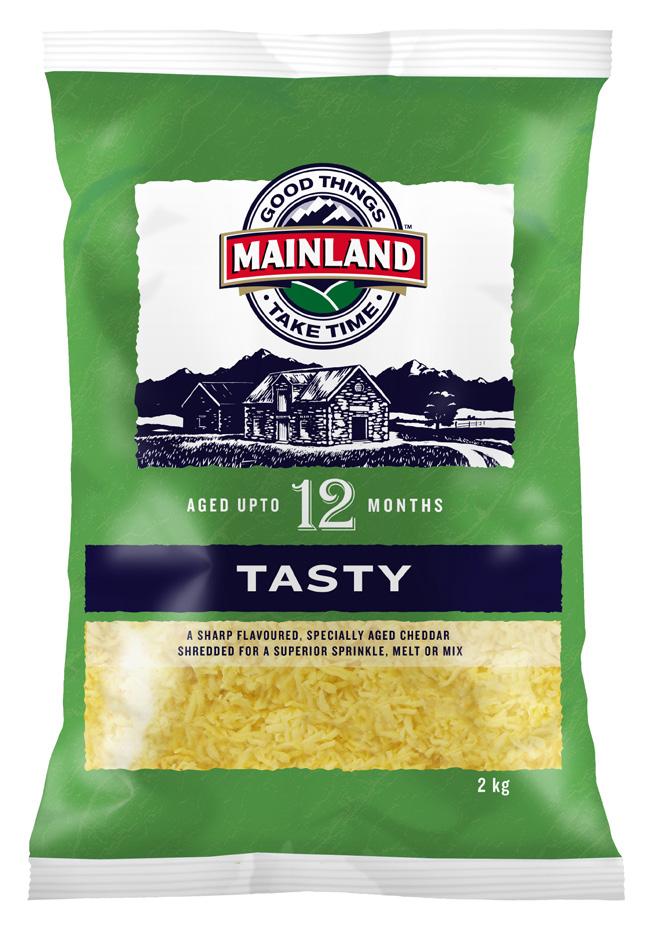
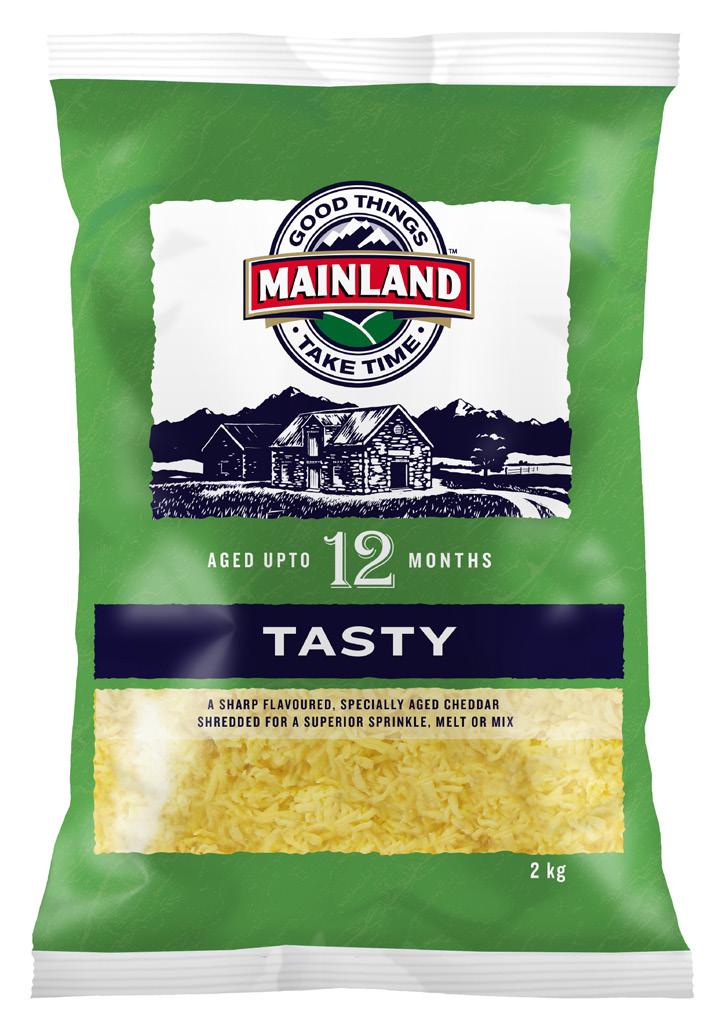

Mainland Cheese Tasty Shredded 6x 2kg
Code: 3001950
EXPERTLY CRAFTED RICH, DISTINCTIVE FLAVOUR
IDEAL MELT
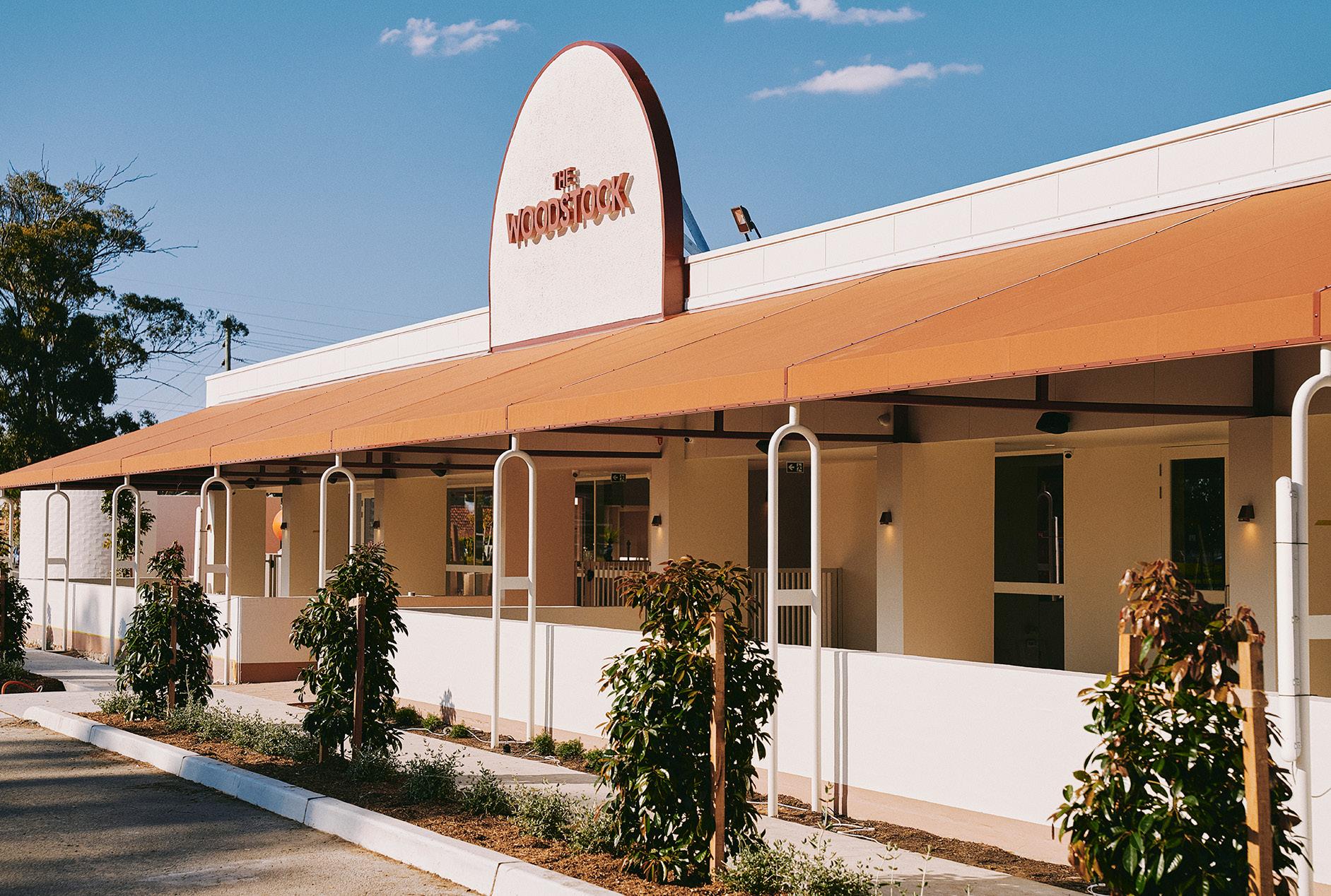
Crafted for the community
Solotel has unveiled its new concept for The Woodstock, bringing fresh energy and functionality to Sydney’s growing northwest.
IN WESTERN Sydney, a local landmark has been given a complete overhaul, with Solotel taking the old Carousel Inn and unveiling a new concept, The Woodstock. Featuring expanded spaces, refreshed interiors and a renewed sense of energy, the venue was designed to meet the demands of the growing northwest community.
Having had the Albion Hotel in Paramatta in its portfolio for 40 years, Solotel was searching for another large-format venue further west, and in 2021 acquired the Carousel Inn from the Stanfords family – a venue that hadn’t had any significant works for at least 20 years.
Solotel’s CEO Elliot Solomon told Australian Hotelier: “What attracted us to the wider Western Sydney area was that it’s such a fast growing area, economically and population wise. There’s a lot of strong local communities, and for us as a group, I think that’s what we’ve always done really well – being ingrained in the local communities that we serve.
“We’re generally more of an inner-city group and it’s a very saturated, competitive market. We’re primarily food and beverage led, and we felt there

was a lot of opportunity for us. The other thing that attracted us to the Carousel, now Woodstock, was the size. It’s a huge block of land, we’ve got a 250spot parking lot, and in our new build, seating for about 700 people.”
Solotel often works with heritage pubs, and though beautiful, from a design perspective they have their limitations. With the rare opportunity to start fresh, Solotel undertook a full-scale overhaul and complete rework of the space.
“When you have big ideas for a design, you’re often limited by heritage, or location of the kitchen, or whatever it is. Whereas with The Woodstock, we didn’t really have to compromise on design other than within the limits of what we were going to spend,” Solomon explains.
“In this case, we were able to design based off what we thought was the best outcome for the guests, the community and the venue itself.”
Design that delivers
Back when Solotel took on the Carousel Inn, Solomon describes a quiet venue that
The Woodstock’s façade has been completely rebuilt.

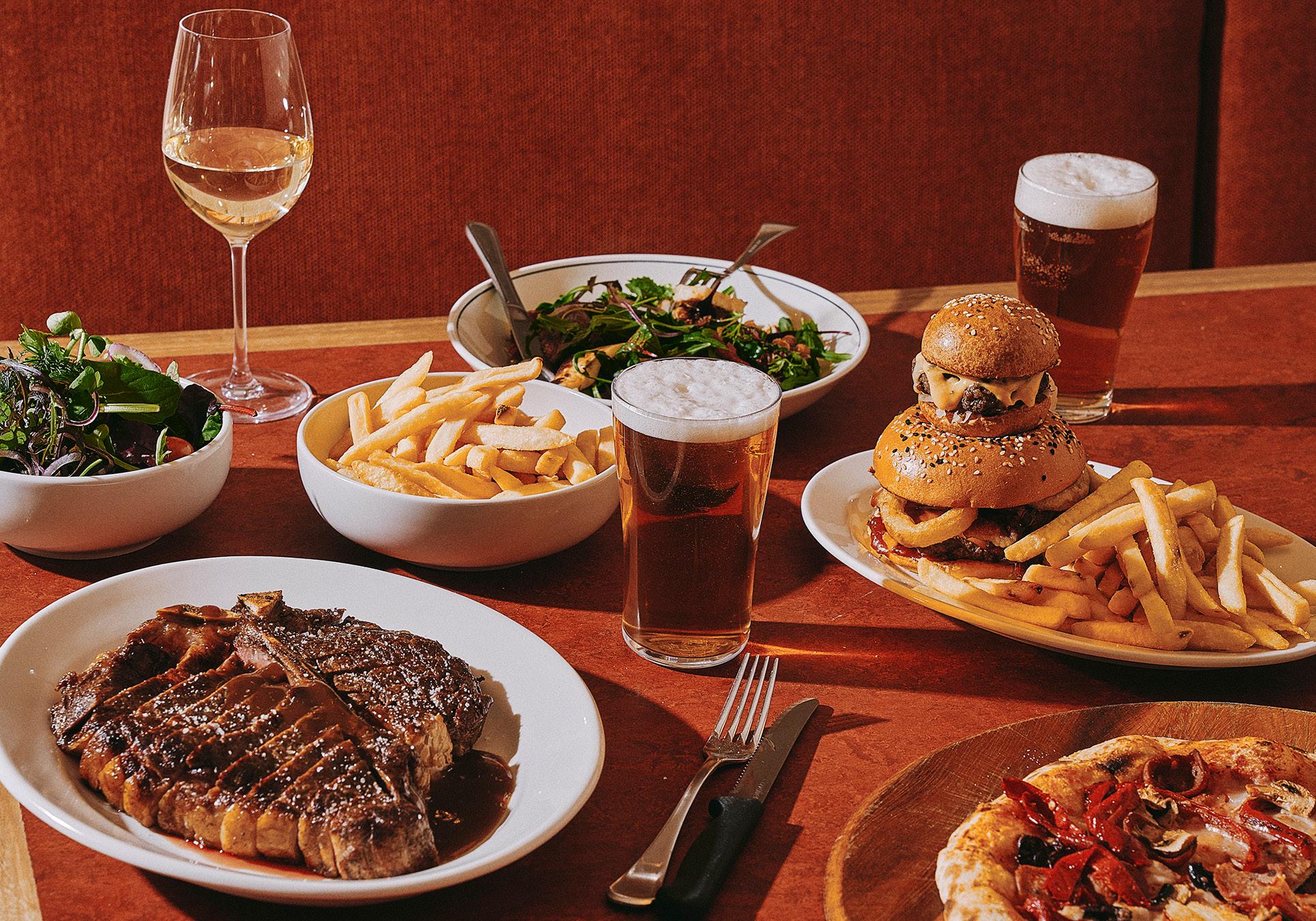
was generating low revenue across food and beverage. The group saw the multi-million dollar transformation into The Woodstock as an opportunity to create a thriving food, beverage and entertainment destination for Rooty Hill residents and the growing northwest of Sydney.
The Woodstock was designed collaboratively by Solotel’s internal design team and KP Architects, creating a venue that feels larger in scale and richer in character.
“It really focuses on being a classic Australian public bar – very cosy with timber and carpet, and a big open beer garden space which connects to the main beer garden,” Solomon explains.
Relocating the sports bar also made way for the new events centre, a flexible space that has capacity to host 250 people for a broad range of functions, complete with state-of-the-art audiovisual capabilities.
We’ve done lots of renovations and rebrands, and for us the value in the rebrand is that it serves a purpose for both your guests, but also for internal teams as a way of forgetting about legacy and focusing on the future.
Elliot Solomon
At the heart of The Woodstock is a warm, family-friendly bistro, with a menu built around generosity, flavour, friendly service and value for money. The purpose-built kitchen serves Mediterranean-inspired pub classics that appeal to multi-generational families.
“We demolished all the existing bars and the existing kitchen, and flipped the kitchen and bar space so we had a clear delineation of an area that we wanted to be more food and dining focused,” says Solomon.
While the bistro forms the centrepiece of the venue, one of the first spaces to be completed was the new public and sports bar, which includes TV screens and high-top seating options, alongside a dedicated lounge with a fireplace for more relaxed sport-viewing.
“There were some toilets, an office, a storage area, and some outdoor space, and we basically incorporated that into the building and that’s where we built our new public bar and sports bar, which has its own beer garden as well.
“Our events space is very flexible in terms of layouts, but it’s also got its own unique entrance on the side. It’s got its own outdoor area as well, and it’s fully kitted out with all the AV equipment you could need. That’s really because we saw an opportunity with events for the area – birthdays and engagement parties etc, but there’s also so much more business in the area now too, so it works for off-site days and conferences too.”
As a destination for families, The Woodstock also features a large, dedicated childrens’ play area with climbing walls, a games corner, talking tubes and slides. Aiming to offer the best of indoor-outdoor pub culture, the new garden bar provides a bright and leafy oasis.
A whole new image
The venue has been completely rebuilt, in a way that allows the various service areas to be broken up into smaller, more intimate spaces.
“If it’s early in the week and a quieter night, we can really contain the energy into one space, as opposed to being a space that’s essentially a
The new menu has been designed to serve the local community with fresh Mediterranean flavours and kids’ favourites.
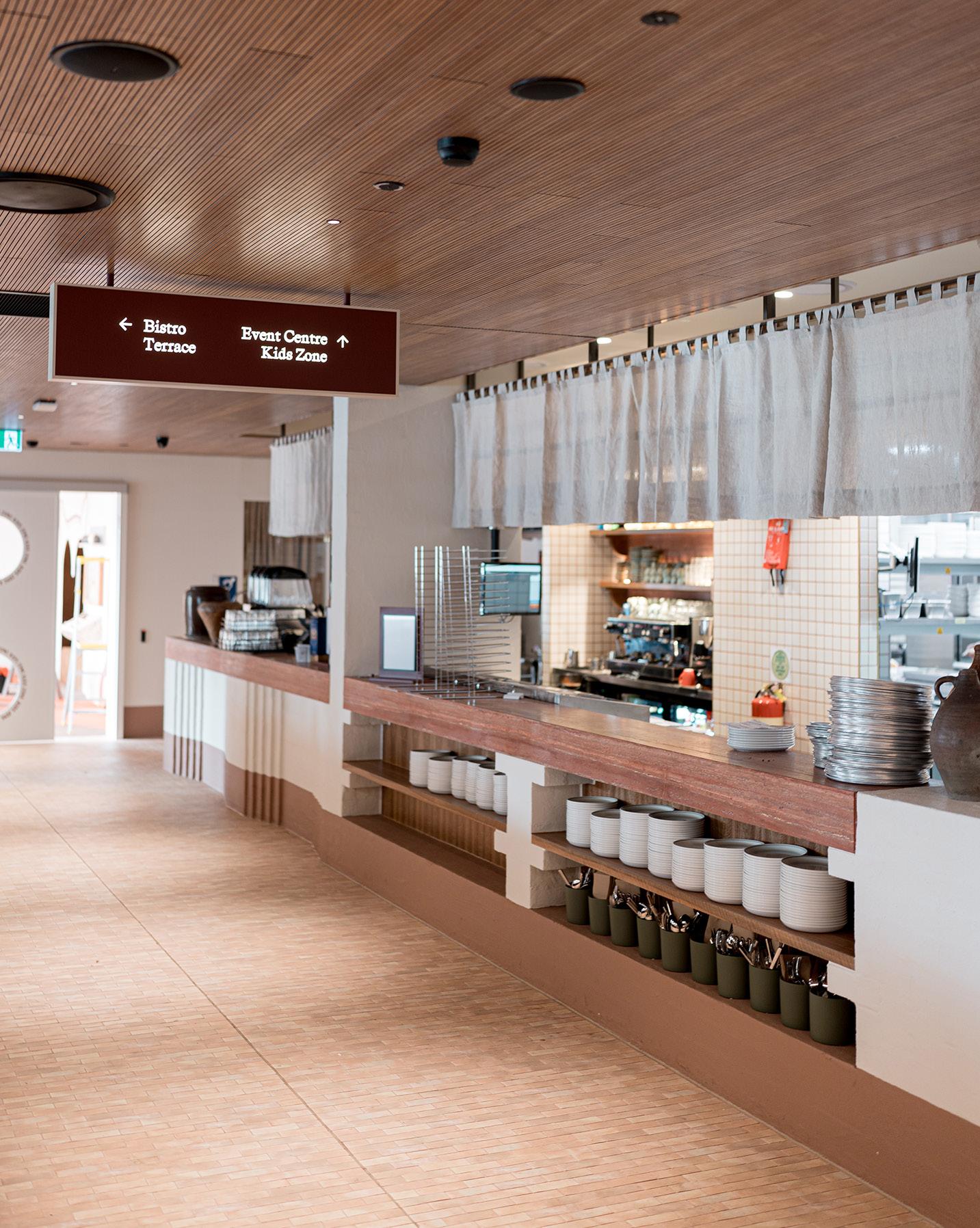
NEW BEGINNINGS
After acquiring the pub in 2021, Solotel spent three years listening closely to the local community before beginning the transformation. While originally there was no intention to rename the venue, as the project progressed it seemed like the next logical step, and renaming the pub after the street it calls home reinforced its connection to the local area.
“We’ve probably operated well over 50 venues in the last 40 years – we’ve done lots of renovations and rebrands, and for us the value in the rebrand is that it serves a purpose for both your guests, but also for internal teams as a way of forgetting about legacy and focusing on the future,” Solomon stated.
“The response has been amazing, it’s been really welcomed and warmly received by the local community. We’ve been slammed, we’re super busy which is fantastic, and it shows that it’s really hit the mark with the community.”
beer hall, where it’s harder to create energy unless there’s lots of people,” Solomon added.
Aesthetically, The Woodstock is entirely different to its former iteration. From the bright and leafy garden bar, to the lime-washed finishes and earthy terracotta tones throughout.
“We wanted to show a lot of change, but the overarching message for The Woodstock was that we wanted it to feel like a beautiful home in the area – appropriate to the area, but really gorgeous and still homely in its design. We didn’t want it to feel pretentious, formal or stuffy.
“The aesthetic is beautiful and light, but it’s not perfect. We’ve got bagged brick which always has imperfections, there’s texture. The floors are a mix of timber and warm terracotta tiles, and we have rugs throughout the space, a lot of beautiful art and landscaping as well.
“One of the biggest compliments you can get when you open a venue, and I’ve done many of them, is that it feels like it’s been around for a really long time. People say it already feels lived in, it feels homely, and I feel like that design brief really worked well.”
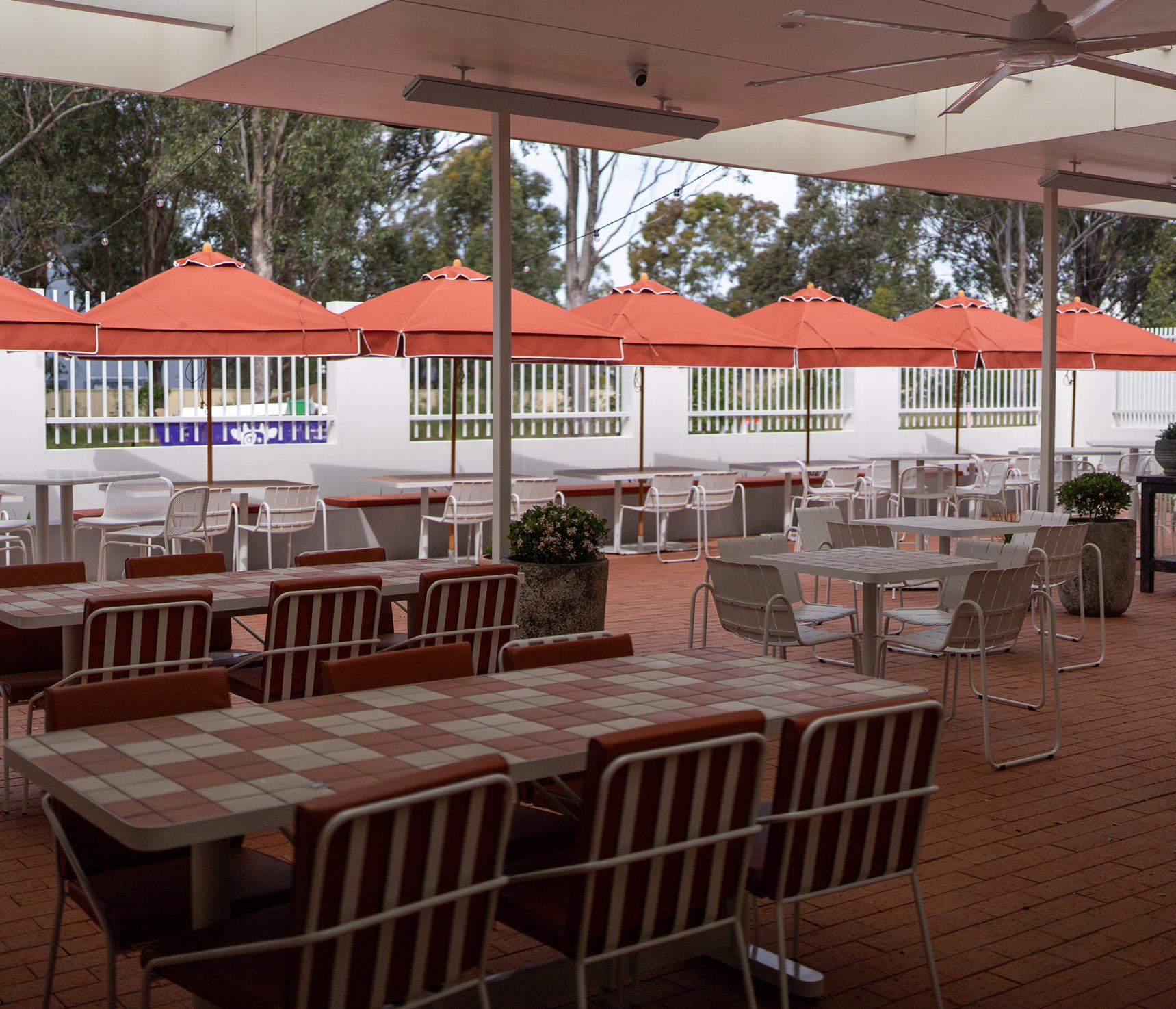
Warm, earthy tones continue outside
Australian Hotelier’s Annual Industry Leaders Forum edition (February) is the most highly anticipated issue of the year. It features candid columns from the leading operators and industry stakeholders within the pub sector, and it provides the ideal platform from which to start New Year conversations with our engaged audience.

Why not get involved, and join the likes of key suppliers, operators/and industry groups and associations such as Solotel, CUB, Australian Venue Co., Hostplus, JLL Hotels & Hospitality, Merivale, Gaming Technologies Association, CLG, Tabcorp,
book before deadline (19/12/25)

The bigger pub picture
With roots in a small-town pub, David Basheer now steers the AHA with a national vision, writes Jason Bartlett, AHA’s NSW and national director of communications.
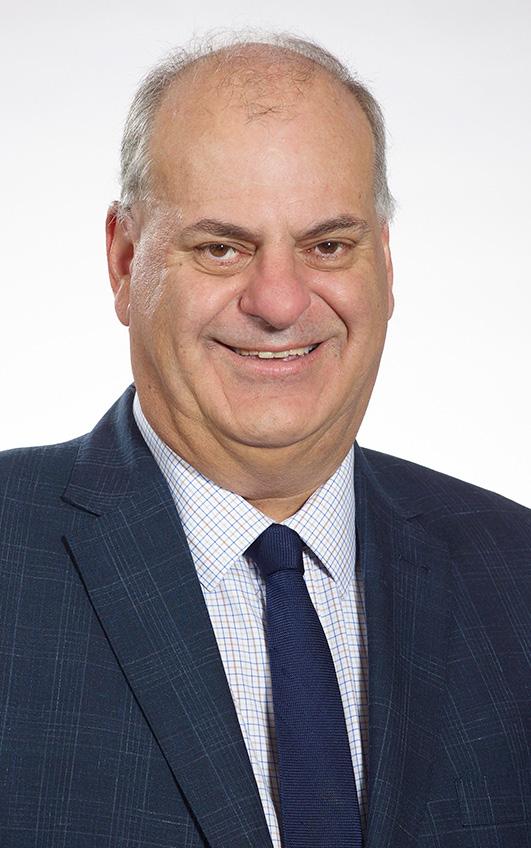
DAVID BASHEER’S first memories of the pub game are different to most. The new national president of the Australian Hotels Association (AHA), has a twinkle in his eye when he recalls growing up in the only pub in the outback town of Kalangadoo in the late 60s.
Basheer’s earliest memory of pubs was no Sunday trading – but it was still the busiest day of the week for his father Fred, a former AHA national president himself, who spent it delivering beer to farmers.
“My job was to sit on the porch and call out if the local copper was to come along – in retrospect it was pretty obvious he knew what was happening the whole time in a town of 700,” Basheer recalls.
The third-generation publican is South Australian pub royalty, and last month, the long-serving SA president was elevated to national, taking over from Victoria’s David Canny.
Canny, another popular publican with beer in his veins, with a knockabout style, reckons Basheer is the perfect person to take over the reins.
“David lives and breathes pubs – the Association could have no better man at the helm,” he said.
At Basheer’s righthand will be AHA NSW president Scott Leach, who returns to the upper national executive as senior vice president, having steered NSW and the national office through the dark days of Covid as former national president.
With pubs feeling cost-of-living pressures to varying degrees, from staffing and skills shortages to rising costs and shrinking margins, Basheer’s immediate focus will be tackling these issues on a national level.
“It’s most obvious in energy and insurance costs,
but customers are tightening their belts too. That’s why the beer tax is such a big issue for us – it’s not so easy to just pass on costs to customers who are feeling the pinch too. Margins are tight and at the same time we face an ever-increasing nightmare of regulatory and compliance burdens.
“Each state is different, but I really feel for our small family members here – forced to take time away from the front bar to deal with red tape,” he continued.
“A longer-term challenge for pubs is changing public behaviours, we need to keep moving with the times, make ourselves relevant and continue to be the hearts of our communities.”
A sense of camaraderie
When it comes to his own pub empire, Adelaidebased Basheer relies heavily on his wife Trina, son James, and siblings Rick and Sonia, who are all involved at different levels of the business – and that same sense of family extends to the AHA.
“It’s that broad AHA family that is our greatest asset,” says Basheer. “Frankly, that’s what makes being involved with the AHA so enjoyable. Publicans, their teams and corporate partners, along of course with AHA staff – many of whom have been in their positions more than a decade.
“We all work so well together and enjoy each other’s company – and you really see that when there is a major issue to be fought – from beer tax to migration issues.”
It’s been a long road for the young lad perched lookout while his dad delivered beers to farmers, but Basheer is looking forward to the road ahead as AHA’s national president.
David Basheer, national president of the Australian Hotels Association.
